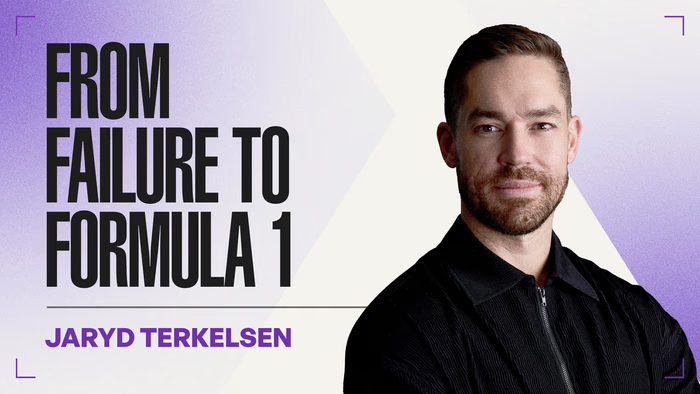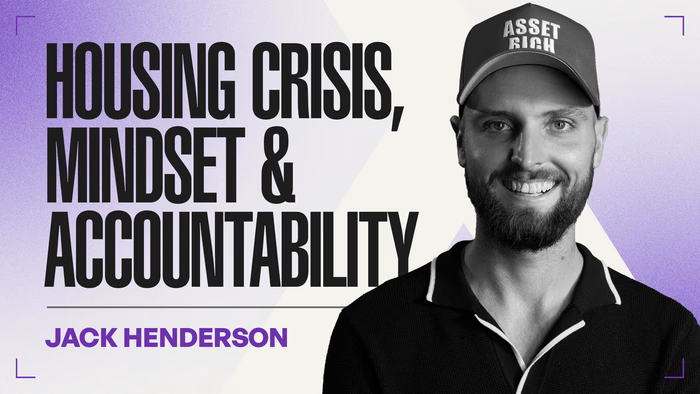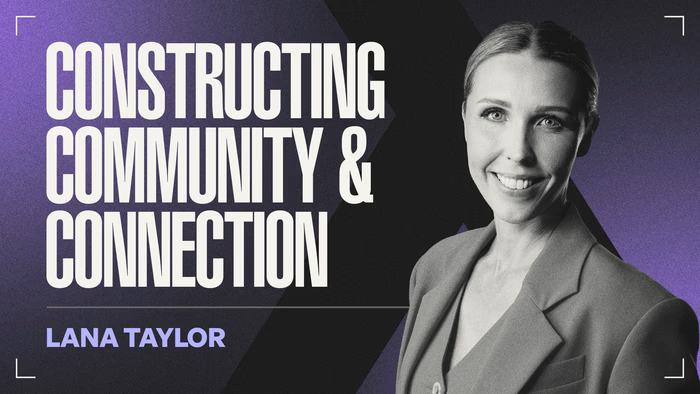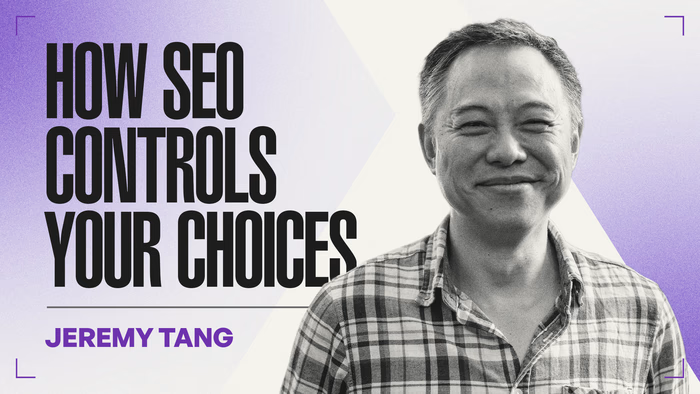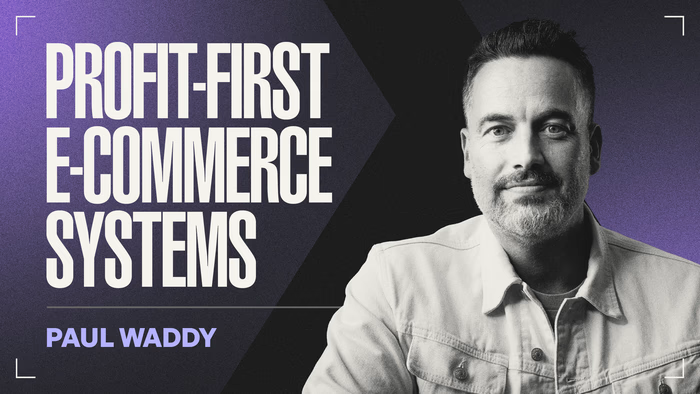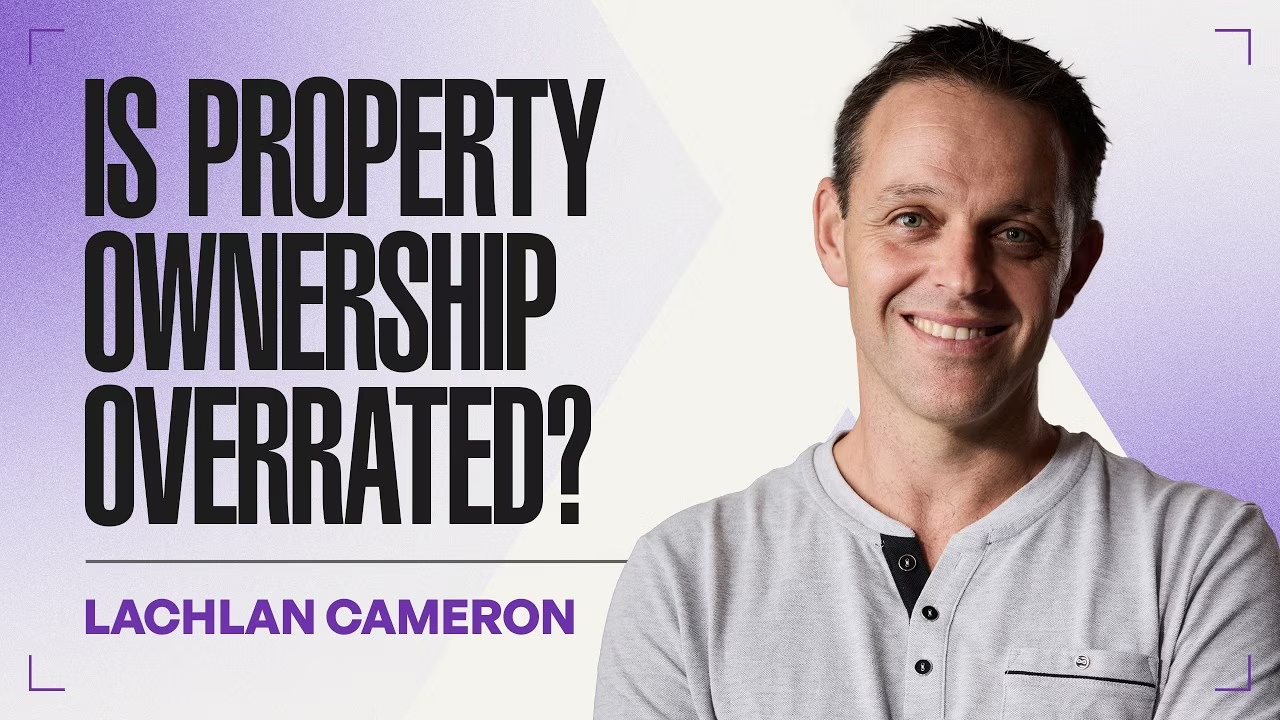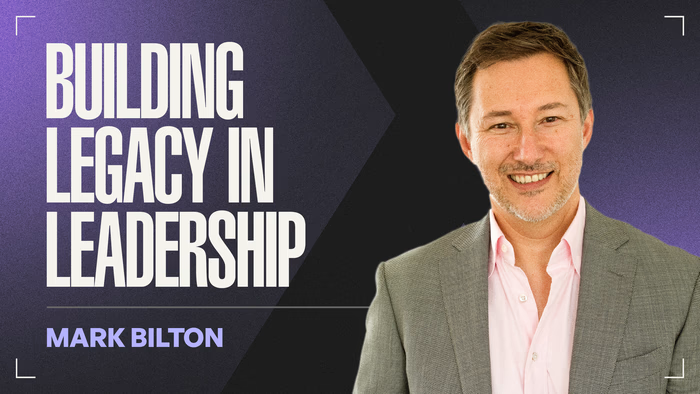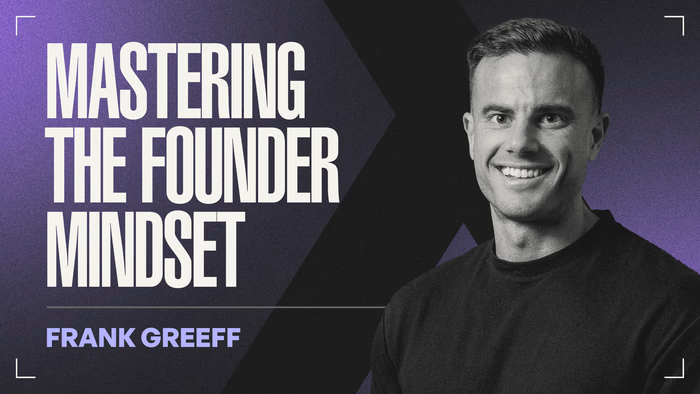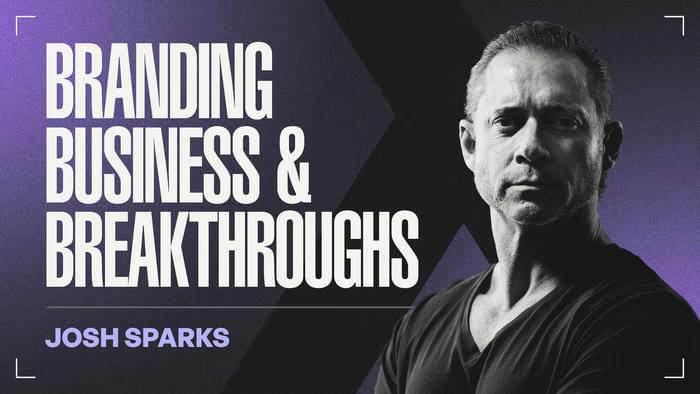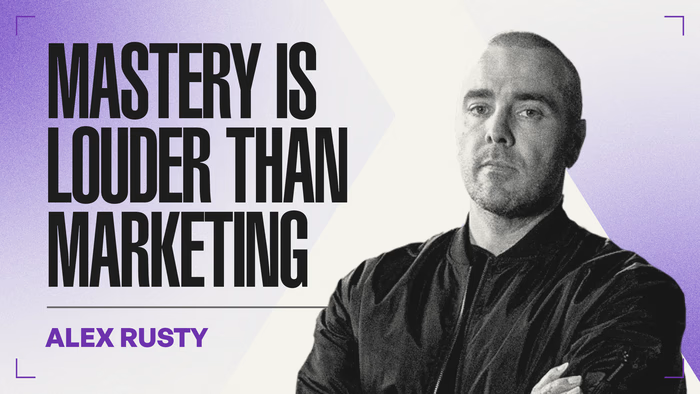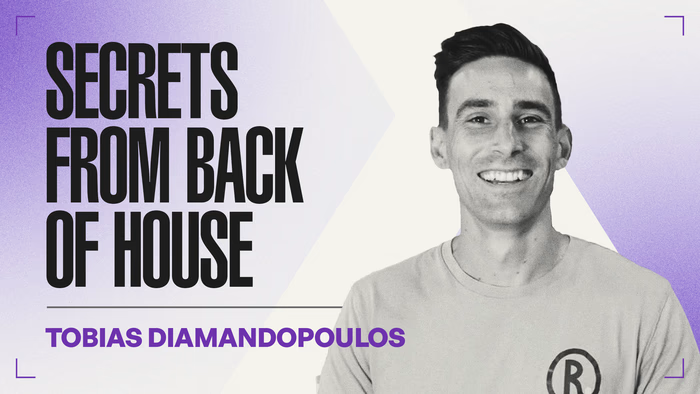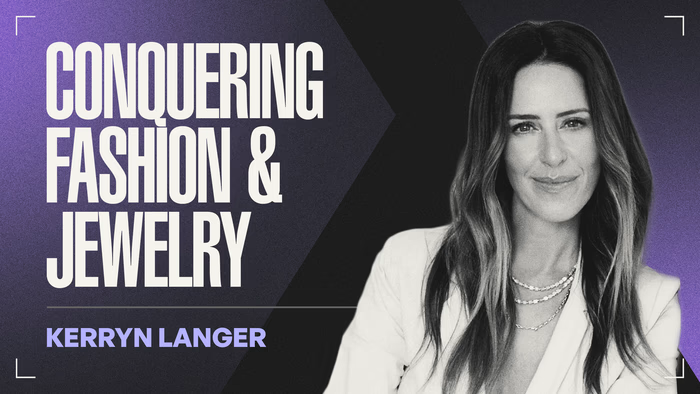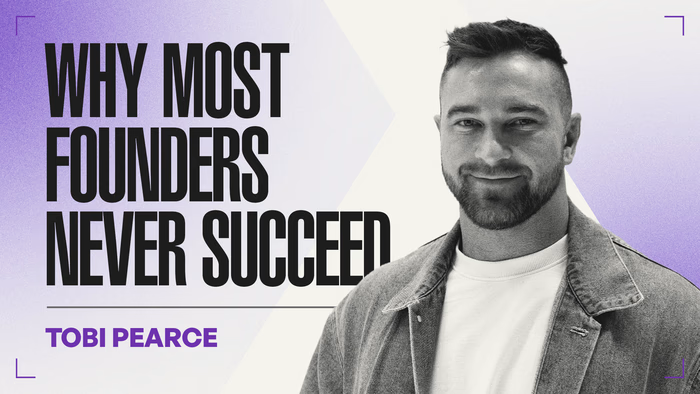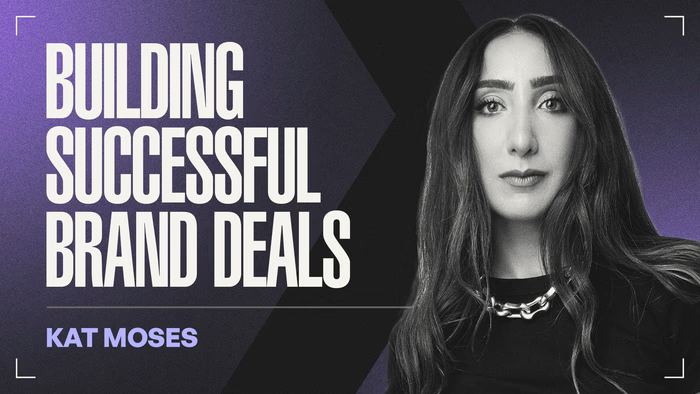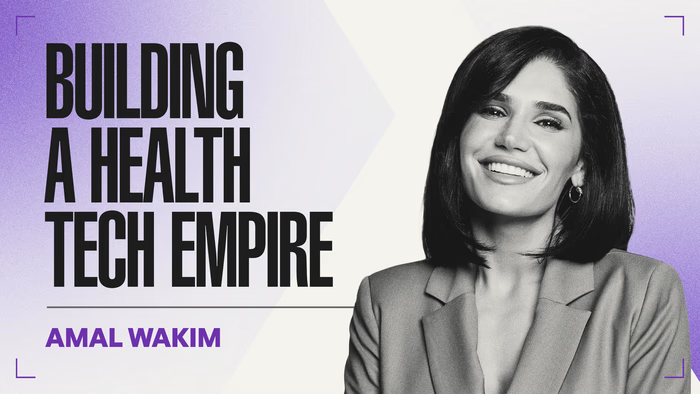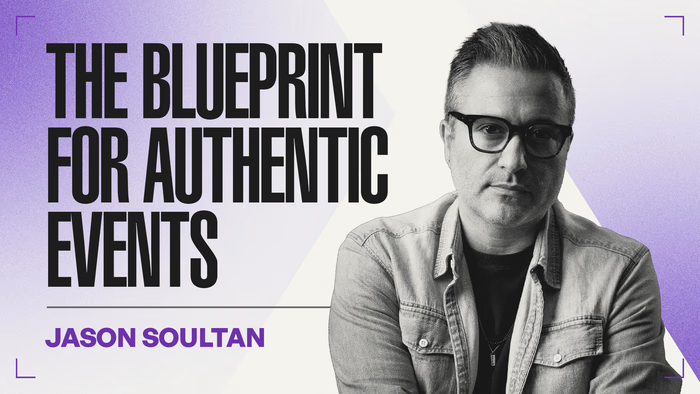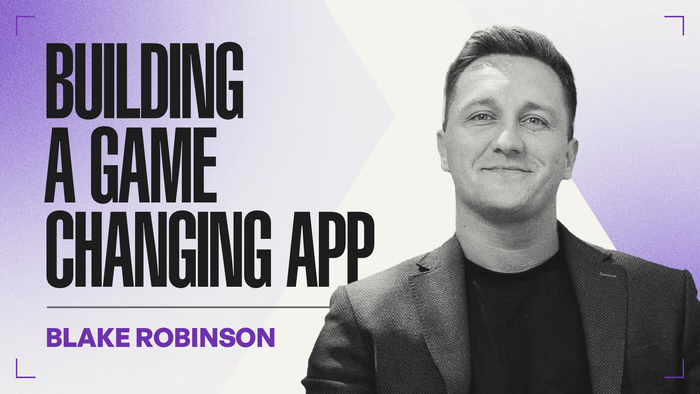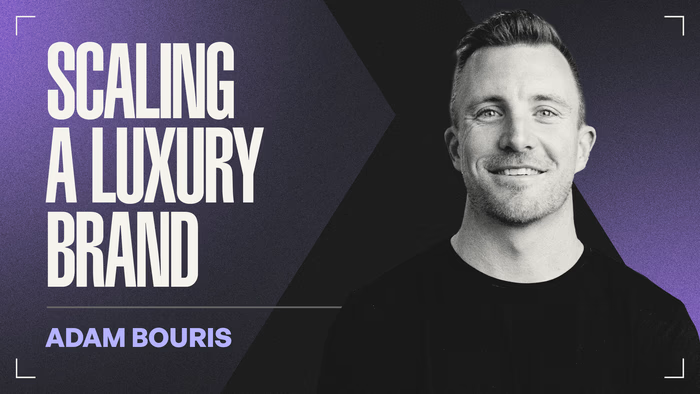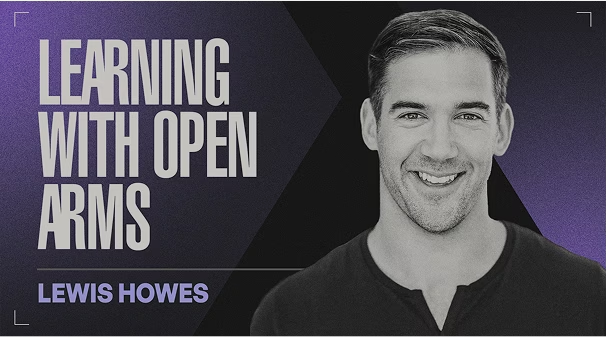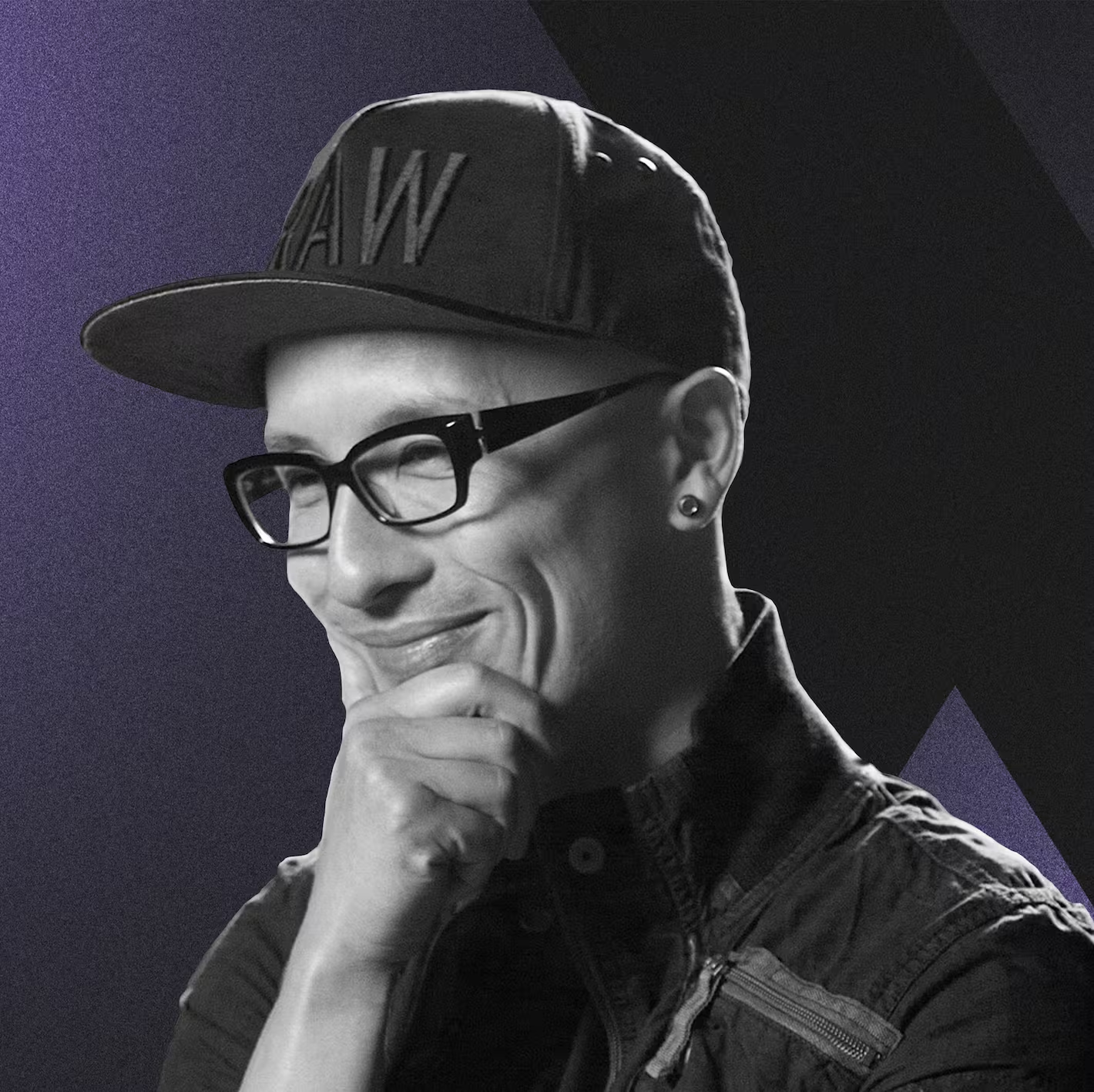


TLDR
Summary
Emmy award-winning designer and The Futur founder, Chris Do, shares his philosophy on creative entrepreneurship, emphasizing that pricing and sales success are less about the work itself and more about the emotional feeling and clarity a client gains during a conversation. Do explains his journey from being a creatively driven individual to developing essential business acumen, largely accelerated by a pivotal three hours of coaching from his mentor, Kier McLaren, which transformed his agency’s revenue.
A central theme is the development of a personal brand, which Do views not as a set of actions or a niche, but as a journey of rediscovering one's true self and core identity—an emotional process that often brings people to tears as they shed years of social conditioning. He uses frameworks from psychology and storytelling to encourage creatives to ask powerful, guiding questions, helping clients achieve clarity on their problems and willingly commit to a solution. Ultimately, Do advocates for courage, persistence, and a willingness to be uncomfortable with the truth as necessary ingredients for transformation and building a unique identity.
Highlights
- The True Sales Catalyst: Success in closing deals is not primarily about the quality of your work or the bid price, but about how the prospect feels while talking to you and the clarity they gain during the conversation.
- The Power of Coaching: Do attributes a significant and rapid increase in his agency's annual revenue (from $2.2M to $3.9M in one year) largely to just three hours of coaching that taught him to ask better questions and negotiate effectively.
- Bidding Mistake: A common mistake for creatives is bidding on the project price (the optimal case) rather than the realistic case, which should account for client revisions, decision-making time, negotiation, and other necessary resources.
- Rules of Engagement (Sales): The goal of a sales call is to facilitate conversation, be a great listener, and help the prospect achieve clarity on their problem. Do learned to stop trying to prove his expertise and instead ask guiding questions like, "What outcome or result are you looking for?" and "What is the real problem for you?"
- Personal Brand vs. Niche: A personal brand is defined as "you," the essence of your soul and everything about you, which requires a journey of rediscovery (often leading to cathartic moments). A niche is simply the overlap between your market (e.g., female floral entrepreneurs) and your passion (what feels like play).
- Copy the Thinking, Not the Output: To achieve true distinction, Do advises people to copy the thinking that produced successful work, rather than copying the work itself, as this allows for unique interpretation and innovation.
- Social Conditioning and Identity: People are conditioned from childhood to wear a "mirror mask"—a persona that reflects how they think the world wants to see them—to avoid being judged or ostracized. Building a personal brand is the process of removing this mask and remembering one's true self.
- Value-Driven Culture: Do learned the hard way to stop hiring based solely on talent (which can lead to a "toxic" office with combative "superstars") and instead hire based on shared core values (taking over a year and a half to filter out misaligned employees).
- Cult-like Branding: Strong brands and movements operate similarly to cults by introducing elements like a secret language (e.g., Starbucks' Venti/Trenta sizes), symbols, and ceremonies to enroll people and create a sense of belonging.
- The Power of Presence: Do advocates for living in the present moment, viewing the past and future as constructs. He encourages creatives to focus on who they are right now, believing that every moment is a gift.
Transcript
00:00:00 - 00:00:48
what are some of the most important things that people need to touch on to get that client to go okay you're the people we're working with you think it's about your work and you think it's about the bid it's actually not it's how they feel while talking to you while they're thinking about who to go with that first year in which I worked with Kier we went from doing $2.2 million in annual revenue to $3.9 million and I attributed mostly to 3 hours of coaching your your
00:00:24 - 00:01:17
personal brand is you it's the essence of who you are it's your soul it's your your everything about you Chris welcome to the agency pod thank you for joining us and now we get to hang out in person that's I um uh I don't know if you know this or not but you're actually the first guest we had on our podcast oh wow going back probably three and a half maybe four years and I just wanted to say thank you man because everything that we've created the agency the ability to make
00:00:54 - 00:01:53
content it does stem back to all your online resources and assets and I remember when I was driving home after seeing Gary ve on stage and I realized I wanted to start a business the moment I got home I open up YouTube and I typed in brand design and you popped up and when I made the decision to start a business you were the first teacher and educator that I dived into and if it wasn't for your courses and materials I don't actually think I would have created what I have right now so I just
00:01:23 - 00:02:21
wanted to say thanks man thank you for saying that I appreciate you sharing that it's wonderful to hear when you send a message out into the universe that and actually hit somebody and they they take action and their lives are transformed because of that yeah my favorite one was actually the stylescapes okay that was the most interesting course that you created because for me trying to present mood boards to clients was an interesting one and I think what you were able to do with that is put a framework around how
00:01:52 - 00:02:44
to think about facilitating the client through the process CU I think us as designers can classically just go we know what's best for the client but how you present it and how you portray it through that facilitation of the client can tilt whether they agree with what you're saying or they go with your lead or they fight and rebuttal things yeah so yeah there's my whole team at rival have dived into your courses and content and we're constantly learning and tinkering and I know you haven't had
00:02:18 - 00:03:16
your Agency for a while now but yeah man those resources are amazing well thank you yeah and if your team has specific needs for something that or a problem that you guys are hitting up against if you let me know I'll make a course for it okay it's like I don't spend my time thinking about creative things in that way anymore as an agency as a practitioner but it is sitting on top of like 25 years of doing client service work and I want to give credit where credit's due I learned about the term
00:02:47 - 00:03:50
and the concept from Jose cabay my mentor and I just took his process refined it and taught it the way I know how to teach it and it's such a intuitive tool to use that once you figure it out you ask yourself why haven't we been doing this all along yeah and just to help to bridge that gap between spoken words and final deliverables that if we can chunk the process down to or scaffold towards it it takes a lot of the pain and the frustration around endless revisions away so let us let me know guys if there
00:03:19 - 00:04:08
are tools you're like hey you know this keeps coming up what do we need to do yeah and if it's something I feel enough people want it I'll just make it I think that's a part of your Genius is being able to chunk things down so they're palatable the General market I know you specialize a lot in helping creatives but you also specialize a lot with people in business understanding the power of creativity for you like where does the origin of the business Acumen and what you do come from was that from
00:03:44 - 00:04:33
different mentors along the way because I know from previous conversations you were really obsessing of design and then you were able to meet some people that kind of showed you the RS but who's been some critical characters along your journey that have taught you business and led you to where you are today I'm going to answer that question but I need to give you some context for what I'm about to say yeah I think I'm a person who's kind of not trapped but exists between two realities there's the
00:04:08 - 00:05:04
creative aspect of it which is or the creative reality which is I love to make things I'm fascinated by color texture detail and I pay careful attention to things that are really welld designed from products to websites and everything in between then there's this other side the more logic business oriented person the entrepreneurial person that's a different reality and before I learned to love design I loved the idea of starting business but I didn't know anything about it so even when I was
00:04:36 - 00:05:26
like 11 or 12 years old I was hustling trying to figure out a way to make money mostly motivated by dumb things like being able to buy the things that I wanted to have a sense of autonomy not having to ask others for help to get what it is that I wanted so I started to to kind of have these kind of fantasies about if I ran a business if I could sell this and I didn't know the term at that time but it's called Arbitrage where you buy something at a certain price and price and then you could
00:05:01 - 00:05:58
resell it for a much higher price and you make the money in between yeah I understood that concept I just didn't know how to really run a real business and there weren't anybody within my immediate reach that I could reach out to and say how do you run a business and what are the business fundamentals so it took it would take many failures later before I could actually run a real business yeah and now I'm going to fast forward my timeline I go to Art Center I fulfill the other reality the creative
00:05:29 - 00:06:27
reality and I think this is wonderful and I start to realize really soon I don't find it as thrilling to solve a design problem because I I I know this is going to come across a little funny to some people but it wasn't as challenging anymore like once you learn the rules and I learned rules really fast and I can see the patterns and see how things fit in together that design problem like the printed page it wasn't as exciting to me as it used to cuz I was looking for a new challenge yeah so
00:05:58 - 00:06:47
do you think that your desire to problems has been a big part of what's pulled you into the creative space it just to pull me period I would addend the sentence there I'm drawn towards figuring out problems and in the moment it can be quite frustrating because you feel like gosh I I wish somebody would just lay out the blueprint and I just do that but I like finding problems that other people haven't been able to solve or haven't found interesting enough to solve and then I want to put my energy
00:06:23 - 00:07:10
towards that because I know if I can solve that I'm pretty sure there are other people who'd want the same thing and like what you're talking about the courses so I'm I'm fascinated by that so when I'm out of school I'm freelancing I don't want to necessarily be in the room where everybody's grinding away on the machines in front of their their screens I want to be in the room where they're talking to the client and I'm trying to figure out what do I need to do to be in
00:06:45 - 00:07:49
that position and that's kind of what leads me to where I start to run my business and like many creative people I thought if you have a hot portfolio a reel a website that is enough and didn't understand it it's very magical thinking that because you believe you're good and because your immediate circle of friends and peers know that you're good that the work would just find you it was a dumb idea if you really think about it it's like why would that ever happen but I just thought it would happened and until
00:07:17 - 00:08:15
you you learn from reality you believe this and so I'm sitting there no client work thinking okay I have a business I'm burning money and I'm also not taking a job like a real job so now I'm not only not making money I'm not making money from the job offer that I already have so I'm sitting here trying to figure it out and so I go through this period for I think about two years trying to crack the puzzle luckily for me there are a couple of key people who have entered my
00:07:47 - 00:08:48
life in a very fortuitous moment Serendipity whatever who entered and gave me just enough so I can get to the next mile marker and that was critical so that first person I I would think is a person named Ken rainy Karen is a producer from E entertainment television and they were our clients and she's a freelance producer so one day I called up Karen and I said I need help bidding projects and I don't know what I'm doing and I think a lot of people in your audience Community maybe people in this
00:08:17 - 00:09:07
room can really relate you wait all your life to have your dream client call you but when they call you you just realize you have a really big problem now you don't know how to do the the call you don't understand what a brief is you don't know what questions to ask you don't know how to bid the project in a way that they're used to seeing so those are like four really big problems to sort out and that's what I did in the beginning because I was in LA at a time in which there were a lot of opportunity
00:08:42 - 00:09:39
I was getting offers that were way bigger than my skill set and experience and I lost every single one of them and it was really frustrating it's kind of like being invited to the party and you make your way there and the person you want to dance with or hang out with you can't get in that inner circle so you're always on the Outer Edge looking in so we would get invited to bid against the preeminent companies at a time and it just move around like whoever's the hottest company we' be considered for
00:09:10 - 00:10:12
the bid and we would then strike out each and every single time it's so frustrating and the way that I built the bid was I sat there and I was almost like laying an egg like what should the price be and we don't even know and I just put numbers on a on a I think we're using like pag maker I guess design today yeah there was no Rhyme or Reason like 2,400 1300 and just add them up and just write something that create a list of different things you're doing pricing either things I'm doing or things I'm
00:09:41 - 00:10:39
delivering and just a random price and just like just does that number look good is it a charismatic number 11,300 what's a charismatic number real quick a charismatic number is usually one that ends a nine okay or seven or something like that where people for some reason they see that ending number that's why you see so many things for 3.99 verus 400 I don't know why but there's a charismatic number so I thought the more precise the number looked Yeah the more the client was going to perceive we
00:10:10 - 00:11:10
spent a lot of time thinking about it when literally I'm like probably playing Super Mario and like let me just putting these numbers and I'll sit on it for a day I did it in minutes and then I would send a two or three page proposal a bid not a proposal and then Wonder like gosh there's got to be a better way and so you lose enough job jobs and you feel like really down on yourself yeah and you think that was a $60,000 job that was a $40,000 job and that money I could have used cuz back then $60,000 would
00:10:40 - 00:11:35
have lasted us a whole year yeah I'd be living like high high as a hog at that point for 60,000 Grand right cuz my overhead was so low yeah it was just you at that time at blind no no it was it was me and and my girlfriend and then later on my wife and a couple of friends and the way we worked it really weird cuz it was like kind of like a art commune I invited my friends to quit their jobs yeah with no assurances that there would be work for them but I knew they all hated their jobs I said hang
00:11:07 - 00:11:55
out whenever I get work we'll just divide up the money somehow yeah and they said yes these are all my friends from school who were working at big companies and they hated their corporate job and so like one by one they're like I'll quit I'll come I'll quit I'll come so we'd hang out I'm like okay so there's a project can you work on this and they would kind of keep track of the hours and and it wasn't really like based on the hours was it was very feeling based okay I think I'm going to
00:11:32 - 00:12:22
just give you four grand for it is that cool that cool yeah and we never argued about money it was really cool like I was this benevolent CEO who's like I think you worked a lot why don't just give you this portion of it so I didn't even know in my own way I was handling it kind of like value base paying my people value based but they took a lot of risk cuz when there was no work we just hang out yeah so Karen comes into my life I said you know I don't know how to bid these projects can you help she
00:11:57 - 00:13:05
goes I'd be happy to I didn't know this at the time but but producers who who work in a certain field they bid for free I didn't know this but they Bid And if you win the project you just kind of a good faith gesture you hire them and what they put in the bid for themselves you pay them so they say producer 12 days at $800 a day you pay him $ 9,600 yeah that's how it works I didn't know so Karen builds a bid and unlike someone else who built a bid for me who took the files away and just gave me a PDF she
00:12:31 - 00:13:31
gave me the spreadsheet we didn't get the job but I got something much more valuable I learned from Karen how to build a budget and an estimate in the most logical way and that was the first big moment for me like the first big breakthrough like this isn't so mysterious anymore right she mystified the process yeah basically she asked me a couple of questions um what are the milestones we ma about on a calendar with a piece of paper and pencil like throughout the project what the big points yeah it's
00:13:00 - 00:13:47
like like let's say it's a 5we project so she would print out two pages of one month each say January February we would look at it and she goes what are the milestones we put them down and what are the resources you need so once you understand the Milestones she's basically asking you break this project down into chunks yeah well there's a design process there's an animation process there's editorial there's post- production whatever it was and then what do you need for this okay so I need two
00:13:24 - 00:14:17
designers for this and she would just map it out she goes okay and she'd go away in the spreadsheet and she'd work it out and she just punched numbers based on what we projected but she did the first thing which was she added more time for people than what I said M designers are notorious for underestimating the resources and how long something will take yeah producers who are smart who are experience already know this so if you say it's going to take me two days I need two people she'll put three three people for four
00:13:50 - 00:14:41
days she just doubles things and just adds more and if we don't use it no problem but she knows enough that if I needed a little bit more time or more money it's already in the bid you're kind of building the worst case process or maybe what's likely to happen is I say I think it's the most realistic case not worst case yeah yeah where you are doing the most optimal case and you're not accounting for client revisions indecision or they want a little bit of a and a little bit of B we think
00:14:16 - 00:15:00
streamline because we only think what do we want to make we're not thinking about what the client's going to actually do and that's a mistake I made for like the first year which is bidding on the project price not thinking about facilitating the client calls negotiation different different steps along the way and making sure you can help them make a decision and if they don't like something you rework it so there's all these different potential routes a project can take so you're just
00:14:38 - 00:15:28
like predicting what that could really be and then that allows you to get a accurate price project yeah yeah yeah what were the other things that you realize in that process that you're like okay when I bid I have to have these ingredients I have to Showcase these things to the client maybe from the client's perspective in that moment or much later on I think let's let's talk about the bid cuz then you have the proposal which is a little bit different but like bidding for someone's work to
00:15:03 - 00:15:57
go okay you're the agency or you're the freelancer I want to work with what are some of the most important things that people need to touch on to get that client to go okay you're the people we're working with okay this answer is going to probably throw your audience for a loop you think it's about your work and you think it's about the bid it's actually not it's how they feel while talking to you while they're thinking about who to go with and so you start off with Goodwill and most of us don't
00:15:31 - 00:16:16
think that they think well the clients have a thousand options I'm just one of many and they're just talking to me because they're just vetting people yeah but what you don't realize is the clients are really busy they are not going to agree to have the conversation unless they feel like they've seen enough from you to Warrant a conversation how do I know this let's just say you're a freelancer and you're working out your bedroom and there are people in your inbox in your DMs
00:15:53 - 00:16:41
constantly asking you for a meeting constantly it doesn't matter what size you are and you won't give them that meeting when you agreed to give them a meeting you've already made some decisions like I like your tone I like your approach there was a good value proposition a great offer I couldn't say no to or you're like oh my God that person's reaching out to me so they have some notoriety this is cool so when you agree to have a call and it goes both ways it means you both see value in each
00:16:17 - 00:17:11
other so there's a big shift that happens there but in those days I'm like I'm stressing out I'm like we're getting on a call what am I supposed to do or say and I didn't know that there are actual rules of engagement and so I would wing it and there's a problem with luck my business coach Kier McLaren who's a pivotal figure in my business education he said don't mistake Good Fortune with having a good plan what that really means is because it worked out doesn't mean you actually know what
00:16:44 - 00:17:33
you're doing and if you are in a position where you're for whatever reason you're really hot right now everybody's like want that look that that kind of style that edge that you bring to it and then you're getting all this work so you're like I'm a genius marketer I'm a genius brand Builder I have a strong personal brand and it's going to work and then 2 3 years later no one calls you you're like what happened yeah and well you're a genius marketer you're a good brand Builder you
00:17:09 - 00:18:01
have a strong personal brand right let don't just leverage that yeah you you have no clue what you're doing you're just writing the Wave It's to say like you you have a really good wave like like if you're surfing like I know how to make waves know the wave happens with or without you you just happen to catch it from time to time but the people who can read the waves who understand the Rhythm can always seemingly find the perfect wave because they understand something you don't so getting on that
00:17:34 - 00:18:35
call you have to develop interpersonal skills you have to be a great listener you need to facilitate the conversation and you're trying as best as possible to help the prospect get clarity on the problem so that they're inspired to make a decision so I thought in the beginning it's all about I need to prove my creativity my expertise to talk about my work or to pitch ideas to you and that's exactly the opposite of what you're supposed to be doing yeah so you identified that if a client can come to
00:18:05 - 00:18:57
a moment of wow I'm getting Clarity just by talking to Chris on this call that's enough for them to go you're the person I want to work with yeah despite the credibility despite the whatever yeah cuz I I experienced something similar with Simon beard from Culture Kings it's not as prominent here in America yet the irony with Culture Kings is they took American culture to Australia sold it to Australia now they're selling it to Americans but Simon beard dm'd me on Instagram and I was like holy crap man
00:18:31 - 00:19:20
this guy's like built one of the biggest fashion labels in Australia and I got on the call and I said to him after we talked for 30 40 minutes we just headed off talking about marketing I was like man you could go hire any agency why do you want to talk to me and he's like I Just Vibe with your content you think different like there was that sense that I'd given him clarity through my content already so my content was giving my audience Clarity and that was why they were getting on calls with me and when
00:18:56 - 00:19:43
we identified the clarity piece that's when we started to really scale but you're right I would agree with that and if if there's other Rules of Engagement if Clarity is one of them what are some other things that people need to be mindful of when they're on a call with someone that they might feel they're out of their league on or you know that sense of imposter syndrome like this client's too big for me I hope I get this project that that can make people nervous are there other Rules of
00:19:19 - 00:20:13
Engagement that you would need in that situation yeah first let's not unell how important it is and how difficult it is to help people achieve clarity yeah we we can't just sweep down on the rug like Clarity check I got that one that's not easy you have to learn how to ask questions and there are a couple of questions that you can ask that are kind of universal there are different versions of it but basically you just want to ask them what is it that you need help with what outcome or result
00:19:46 - 00:20:35
are you looking for and once you get an understanding of that you're helping them articulate to you but also to themselves what is it they want to have happen and then you want to ask questions like what is the challenge for you like what's getting in your way what is the roadblock for you because if you wanted that and you already got it we're not having a conversation for example if you're married you're not going to say well my big goal in life is to get married no you already have that yeah so
00:20:11 - 00:21:02
we're not talking about that but your big challenge could be we're having some marital strife and I I I need to save my marriage now we know what the goal is so then we say well what's the challenge then and we just listen and they'll tell you things like from my wife's perspective or my husband's perspective I work too much I'm not present when I'm there and I seem disinterested in in the family the raising of our children there's lots of those components or or
00:20:37 - 00:21:27
maybe we're not as intimate as we used to be so you're hearing challenges and you're listening for the one that you think might be the one and you're checking against your own life experience what you've what you've learned and what is specific to the person and then once they tell you what the challenges are you're making sure that they're real challenges and you might ask like what's the real problem for you then yeah and it's like you know what I don't know how to balance this
00:21:01 - 00:22:04
and this then you ask them questions like what Solutions have you considered and they'll walk you through it and it's a brilliant thing and they'll say like well I I I could have date nights okay I can hire another person to delegate work to so that I'm not the person who's answering all the calls great of those Solutions which one feels like it's the easiest thing for you to do what's the low lowest hanging fruit I'll do this and I'll do this and I'll do this is there anything
00:21:32 - 00:22:38
else no I think that's it so where would you like to go from here well do you do guidance counseling or you know marriage counseling I do would you like to know more yes I would I found this to be very helpful so it's very different than the way people have their new business calls what they think of as sales and this is where they struggle how do I know this just watch any of our role plays attend any one of Live Events and almost guaranteed 99.9% of the people show up to do these role plays who are
00:22:06 - 00:23:03
experienced who have good intentions Crash and Burn every single time yeah and I'm left thinking I guess you've never learned how to have a proper sales conversation and so that's a big thing so having clarity as the goal now comes to work where what if they say this what if you say this what happens how do you respond to this and it's a very difficult thing because you're you're tangling with the client because they're you know they could throw potentially things in your way that might not be
00:22:35 - 00:23:26
real it might be a complaint might be a real objection like you've got to learn the rules of sales and the Rules of Engagement and I understand so like you know even in my experience you know many people that are trying to start a business as a personal brand or as a creative as a freelancer they think sales like you said is trying to you know tell the client why they're great but it's actually the opposite have the client tell you what their problem is and then have them present to you what
00:23:00 - 00:23:57
they think they should do about it I think you're just guiding them through the thinking process yeah because it's it's hard to think why do you think it's important that the client has to do that thinking process rather than like to say someone talking for 80% of the call trying to convince a client oh I see okay yeah well here's the thing unless you come up with the idea you're less likely to follow through with someone else's idea there's a very small percentage of the population where you
00:23:29 - 00:24:26
say you should exercise you should stop eating red meat and smoking and drinking and you need to and everything will work out for you like why is that going to work you don't know me yeah you haven't heard me I don't feel seen and heard so what you do is by the way that you phrase the questions you help to guide them along a logical process of thinking that they might arrive at a conclusion that is beneficial for them Chris Voss says this thing and I think it's a beautiful statement I think it's Chris
00:23:57 - 00:24:58
Voss hopefully I'm citing this correctly is that negotiation is the Art of Letting the other person have it your way I think that's Chris Boss yeah yes so if we think about a sales conversation a sales conversation is you thinking about what it is that they want and helping to guide them so that it feels like they have autonomy and free will but ultimately they land kind of where you want them to land and it could take many different routes and it's a very complicated skill to develop it's not something that
00:24:28 - 00:25:26
you're going to watch a video like I got this I'll do it yeah yeah who helped you with that early on other than the characters you mentioned already to really refine your sales Acumen on your negotiation process yeah I I think I understand problem solving and as we mentioned before I'm looking for problems to solve all the time I didn't know what the rules of engagement were I didn't know you can actually literally ask the clients or Prospect what it is your thinking so my business coach Kier
00:24:56 - 00:25:51
mcclaren's like how would you even do these sales calls the way that you're doing them when do you find out if they like this or what they were inspired by you never ask and I thought I can't ask that kind of question I'm a creative aour like I'm supposed to use my intuition my my magical powers to look at their face and their brief and their brand and just into it the solution right he goes no no just ask I'm like I didn't even know you can ask okay yeah so the next time I had
00:25:24 - 00:26:21
a client which was like within days talk to them and asked them questions didn't get that client came back and said hey I did what you said I asked these question they said this he goes oh you need to say this instead and so I have to say my coaching sessions were 90 minutes long usually with Kure in two coaching sessions basically 3 hours he helped me to close and become a whole new person just because he gave me a permission to ask the questions and then he made a small tweak he says oh when they ask
00:25:53 - 00:26:55
this or they respond this way just ask this question instead and he he modeled it for me cuz he he would give me example of questions I'm like oh it sounds really basic it sounds like a normal conversation you're having with somebody and so I could just do that and so that first year in which I worked with Kier we went from doing $2.2 million in annual revenue to $3.9 million and I attributed mostly to 3 hours of coaching so I want to bust another myth here which is it takes years of coaching multiple sessions of
00:26:24 - 00:27:21
trial by fire crawling through glass and walking on hot coals for you to become a different person well that's entirely up to you you can transform the minute you decide I'm open to hearing a different way and I'm willing to execute on things I don't fully understand and understanding it won't actually help me execute I just need to execute so when K like jump I just like how high do we jump when's the next time we go and I found over and over again when I was seeking help when
00:26:52 - 00:27:51
somebody gave me help I just executed it I don't sit there and debate about it you know and it's worked out really well well for me interesting and I remember once when you were in Sydney at the Google headquarters a woman was asking you a question and she asked a question in a way where she wanted the answer you gave her the answer and then the rebuttal was yeah I've tried that doesn't work how much of I've tried that but it doesn't work for me gets in the way of us creatives from actually having
00:27:22 - 00:28:25
the success that we want you know like like you were saying before so much of what your success has been is attributed to 3 hours of coaching which was because they said to do something you just actually did it you didn't question it well what we do is we want to develop critical thinking skills yeah we want to have evidencebased research and be analytical that way so when we say yeah I've tried that but that doesn't work where else does this work where else it doesn't where it's not true okay so
00:27:53 - 00:28:52
let's look let's say you want to get fit and you try a program you you monitor what you eat and you exercise moderately and you're still not that close close to your go so do you just say then exercise programs don't work dieting doesn't work no I think your application of it your commitment to it maybe have failed and there wasn't a magic pill that you can drink so now to rule off every version of that and say none of that works for you is a little silly yeah right and so
00:28:23 - 00:29:04
I just found one example so what I do is when people say things to me I try to find the one case in which it's it's not true and it's actually very easy to do because most people aren't that critical of a thinker so when they say things my presumption is I don't think you know what you're saying I don't think you've thought this through and I don't think you looked for evidence and you're not looking at this critically I just try and find the one case where it's not
00:28:43 - 00:29:38
true and if it can be proven once that it's not true then the whole idea falls apart this is the scientific method right yeah like so like if I was stubbing to you saying D go do this and I would have say to you yeah Chris have tried that it doesn't work then you would try to build a case around something where I haven't critically thought so that you can prove evidence that maybe I need to be more open-minded hypothetically well potentially depending on a relationship yeah what our kind of social contract is I would
00:29:11 - 00:29:55
give you very different answers yeah if you hired me oneon-one I would say something very different than if you approach me on the street or if you approach me in the comments because I don't know you you don't know me you we don't have an explicit relationship that I can just say whatever it is that I want So when you say social contract it's like we need to understand each other at least a bit more so you when you give the advice it's a bit more relevant to the person you're talking to
00:29:33 - 00:30:18
have you heard that term social contract before I don't fully understand okay great let's just talk about it well as Society in different groups of people we agree to certain rules without even speaking right now I'll give you some example is kind of gross okay the three of you guys are traveling together if someone wants just rip one in the car you just do it because it's just three boys soon as I'm sure it happens why bringing it up right somebody wants to flick a booger out the window it doesn't
00:29:56 - 00:30:47
matter cuz you're like we're bros we're cool the minute a girl walks in you're like can't do that now the social contract changes and so we have agreements in the way that we work and how Society works like we have an agreement that we're not going to just randomly commit acts of violence on each other we could but we don't and every once a while somebody breaks that hopefully then good people step in to prevent that from happening yeah right like theoretically if you leave
00:30:21 - 00:31:07
something of value there our agreement is we don't take it from each other agreed and we just have to hope that that's true or if you live in a small town you can leave your doors unlocked and no one's going to come in and take things without letting you know like hey Dana borrowed a cup of sugar or I got you next time you know we were short and butter or something and you're cool of course I have a friend who grew up in the Midwest and it always confused them cuz when they would go on vacation his
00:30:45 - 00:31:37
mom would drive away and say hey do we leave the doors unlocked he goes of course not he goes we got to turn around she's why would we do that CU our neighbors might want to borrow something they have a different social contract you wouldn't want to do that here in Los Angeles because we have a different contract yeah and so what we're talking about here is when someone asks a question like say I'm speaking somewhere and it's a free talk somebody comes and they ask hey you know I'm stuck here and
00:31:10 - 00:32:00
I'll I'll give them advice and then they say well I've tried it it doesn't work I might say Okay I I don't know how else that help you I might just end the conversation there because I'm not really vested in trying to convince you to do something yeah you've shown attachment to an old identity you're showing me resistance to taking new information in so do I want to spend all my time talking to you or would I rather talk to Dane or someone else and help them and my preference is usually if
00:31:35 - 00:32:26
you're not here to learn I really don't know what I can do there's a a quote you know when the student is ready the teacher will appear at this point in time that student is not ready to find their teacher or I am not that teacher and I'm okay with all those options now if you and I are really good friends when I can just say to you man you got broccoli in your teeth something's wrong you know or your socks smell bad then when you say hey man I'm stuck on this thing and I tell you what to do and
00:32:01 - 00:33:01
you're like that don't work I'm like let me talk to you right now I've noticed a pattern of thinking you seem to be stuck and I will get into it with you because I care about you enough to to kind of add that friction that heat so that you can have a transformative moment so it depends on my level of affection or or how much I care and how much trust you've given me that I can do this the extreme version of this would be if you've enrolled in one of my classes so I I was just at Art Center yesterday
00:32:31 - 00:33:37
those students have signed up for something and I feel as an instructor given how much money they pay for tuition I owe everything to them and to myself to give as much as I can in the way that I think they need to hear this otherwise I'm doing them a disservice yeah it actually makes me really angry when other instructors don't tell the truth and they allow their students to go through the program without saying you know this idea is flawed and unfortunately it seems like the direction that we're heading in as
00:33:03 - 00:34:13
Society at least here in America is one of being very careful with words and so that no one has any hurt feelings afterwards and for me unfortunately sometimes the truth hurts a little bit and I think that you've highlighted this perfectly we in like we're in these social contracts with clients with our employees with like everything that we do friends family and so on like we're in one together now right but like if if you were to say around what you just spoke about there about the truth and
00:33:39 - 00:34:26
the honesty when there's a different contract at hand when someone's going through their tuition and they're about to Embark upon their career that's probably when they need reality the most and I know that's gotten you into some hot water sometimes but at the end of the day I think like it's it's the right thing to do it's the most kindest thing to do is to tell people what h L happens and I think it was around where you were judging something on a panel you were
00:34:02 - 00:34:50
explaining this previously on the Pod where you were on a panel and you were giving honest feedback to students and it got a little a little heated um it always gets heated but I'm never in hot water I just want to be clear I'll clarify that then you know why I can't be in hot water cuz I do things at my discretion you can't take away something from me that I'm not afraid of losing so when I taught like I don't care I'm going to do what I want and if somebody has a problem you can fire me and I will
00:34:26 - 00:35:18
make more money doing what I'm supposed to be doing instead of giving my time away yeah and so it's one of those situations now people are so sensitive today like I literally went to a grat show no a graduate program critique and I was like let me just ask you a few questions and some people are like grimacing like oh my God you're going hard on that person like that's not hard I'm just warming up what are we talking about here yeah shouldn't you have shouldn't you know the answers to these
00:34:52 - 00:35:46
questions if you don't now is an opportunity for you to rank some notes so that when this really matters and when it counts you don't have egg on your I feel it's a disservice to the student if later on in life you went somewhere where there were real Stakes not imaginary ones in a room like a job or a promotion a job an interview anything where real money was on the table or you're on stage and you're speaking and you're professionally going to be embarrassed that then you were asked that question
00:35:19 - 00:36:11
and that's the first time you've ever been confronted with that I would think back to every one of my teachers and I would say you failed me you failed me you failed me because this should have come up earlier right it's the thing like when Kier sent me to ask questions differently on a sales call and I heard a question back that I wasn't prepared to answer I went back to him like yo what happened he goes oh you should have said this and I remember thinking to myself why didn't you tell me that in
00:35:44 - 00:36:38
the first place thinking like you knew this was going to come up but here's the thing and I let that idea go away and I'll tell you why is cuz he doesn't know how much of an idiot I am that I didn't know the answer to that question question there's a form of cognitive bias where after many years of experiencing something you forget that you once used to struggle with it yeah and so that's what Kier is thinking this is what happens to me I'm like oh I gave you the assignment of course you know
00:36:12 - 00:36:57
how to do all these things because I know how to do these things and it's so intuitive and then the student goes away I'm like wait I got stuck on step two I'm like oh yeah that's right I need to help you with that yeah so Kier doesn't remember being an idiot so he's not going to give me advice for idiots because he also doesn't think I'm an idiot he thinks everybody already knows this yeah is that what you try to think of when you make content you're like let
00:36:34 - 00:37:22
me channel my idiot and just no I actually have idiots in the room they're usually my team affectionately we're saying I need you to pretend to be like a person who doesn't understand and would question and push back so when I say something and there a term that people don't understand I'm like ask right away even if you think you know or borderline you know but you think the audience wants to know you got to push back because I'm going to keep moving forward I'm like look local motive I'm
00:36:58 - 00:37:48
just going to keep chugging along thinking everybody already knows everything and so if you have people that are on your team are like what form of cognitive bias is that even though they know cu the audience doesn't know and you can help them that way so when you were building your team blinds and the team that you have around you now at the future yeah what are some things that you'd like to look for from your team like how do you make sure you have a good level-headed team around you that
00:37:23 - 00:38:20
are thinking the right way operating the right way are there certain things that you look for cuz I noticed that whenever I've met anyone from your team they're phenomenal very creative very articulated like there's a bit of an energy or an aura to your crew yeah yeah I think I've learned this the hard way which is to hire people who share your core values yeah and so many years ago Kier is like what are your core values because we should hire people that have the same values and beliefs as
00:37:51 - 00:38:51
you because the company's becoming quite toxic and he knew that because I told him like I don't like the people I work with anymore the mistake that I made in the past was I hired based on talent and so when you have a lot of talented people around they can be total jerks they can be close-minded they can be arrogant and they can be really difficult people to deal with and and K used to say to me you're not good enough to have an attitude meaning if you're world class you can have an attitude but
00:38:21 - 00:39:17
guess what friend you're not world class so we're going to learn how to work with people and so what I realized sooner than later was I had a bunch of superstars that weren't willing to work together that were just super combative and the the office became toxic and there's an expression Only Takes One Bad Apple to ruin the batch or the bunch and so a couple of people in your companies a couple too many and it created this weird internal battle like we were eating ourselves alive when we should be
00:38:49 - 00:39:39
a united front working towards a goal and so when there was an opportunity for us to disagree we just turned on each other it was a really bad thing m so I went and read a book by Tony Shay called delivering happiness and it was just an accident because somebody said oh Chris I read this book and changed my life I'm like come on book change your life that's a little bit hyperbolic don't you think and then someone else says hey there's this Tony Shay guy do you want to go see him I'm like okay that's more
00:39:15 - 00:40:08
than once that's a sign from the universe time to go see Tona Shay he was on his book tour how about me stopping and Santa Monica and a friend of mine said I have an extra pass would you like to go I'm like I guess I better go now because if I refuse then pies on my face right and so I go and Tony Shay's there talking about his company's culture and sharing all these stories and I walked away like I better go read that book now because that was pretty awesome I read the book and the book is probably the
00:39:41 - 00:40:45
most important book that you're going to read on culture what I found amazing about they don't have Google money they don't have Facebook money and so they are very inventive with how they do culture So when you say culture what's your definition of that good that's a good question see so we make assumptions about words like culture it's like they have a shared a set of values and guiding principles that they honor and it permeates everything that they do so in the book he talks about like companies
00:40:23 - 00:41:18
with mission statements right the things that are usually carved into the walls and the lobes all about integrity yeah or Community Innovation blah blah blah he goes you know what cover that up and ask any employee what the mission statement is and very few of them will be able to tell you even the CEO doesn't know because this this complicated word Smith multi-part sentence that makes you feel good but doesn't mean anything yeah so if you don't have a mission statement or values that you can act upon as a
00:40:50 - 00:41:44
filter as to what to do what not to do then you have nothing it's just air so you start to set a list of like the Ten Commandments could be considered a set of core values that Christians share yeah thou should not kill thou should not cover thy neighbor's wife th shall not steal whatever it is you just go down the list right and that sorry if I messed up the Ten Commandments there so we wanted to find our Ten Commandments what are our 10 core values and I struggled with writing them and I
00:41:17 - 00:42:11
couldn't like to know yourself and to code to create a code of like your beliefs and values is very difficult thing to do so I did the next best thing I just stole the values from zapo and I just changed some words I'm like here's a guy who went to Harvard clearly a smart guy running a billion dollar company he's thought about this for many years I would just take that so we just literally took the zapo core values and just changed it where like that doesn't make sense for our kind of business so
00:41:44 - 00:42:45
some of the values isem Embrace fun in a little weirdness so if I were to write that I'm like well we want to be creative and you guys can't be too zany sometimes we have to be be responsible adults and blah blah blah we won't hurt each other you know Embrace fun and a little weirdness yeah that is very succinct we can understand that right and so we just borrowed that and that became a part of our values now we have a new problem a lot of people here don't exhibit these 10 core values yeah which
00:42:15 - 00:43:02
is you know for our listeners or what have you you know a common thing I've seen happen lately in a lot of businesses I don't know if it's due to covid or you know everyone coming back into the workplace instead of work from home whatever it is but a lot of people are having challenges with their workplace culture and they're really stuck with like what do I do with it and is it too far that I can't remedy it like you know let's just say someone has a business and they've got 20 30
00:42:38 - 00:43:39
employees and it's not quite where they wanted to be what are some things that other than introducing the Commandments that they could start introducing into their business in the event where people don't actually align with what the values are yeah yeah values are not useful if you don't live by them so what you do is our process of installing the operating system of our values took about a year and a half it's not an overnight thing yeah so first we say these are our values let's have a
00:43:08 - 00:44:14
conversation about it and everybody from appearance is like we're all in cool some people quit immediately and you're like okay once you're clear they're like I don't I don't buy into that and then some people you're like clearly we can move degrees but we can't do a 180 on this I have to let you go yeah the tricky parts I mean the extremes are always easy you need to be fired you're my golden children the ones in the middle are the trickiest yeah do you have the potential to become the
00:43:42 - 00:44:34
person that we think you can or are you more you need to be fired that's the process that takes a year and a half to go through yeah and it's a bloody process cuz every day that goes by you're like you're not exhibiting the values you're not exhibiting the values but how do I get rid of you now that you understand cuz they don't see it themselves so slowly but surely and we're a very small company so I imagine a really big company it would take a much longer period of time yeah and so
00:44:08 - 00:45:15
we start filtering people out some people quit the majority of them quit some I had to fire and some of them just gracefully exited and moved on to another company yeah so now we have a company where everyone's aligned in the culture and we feel Unstoppable there's no more internal resistance there's no more somebody trying to muck up the the works because they don't like the way something is done now when you're talking about remote culture returning back to work there's a real danger here and I'm
00:44:41 - 00:45:37
probably going to get into some controversial water here oh man yeah I feel that in the years during covid and postco people have gotten really accustomed to working in a monoculture they work at home they do whatever they want they dress the way they want and it's kind of like homeschooling there are a lot of benefits but what you don't know how to do is compromise and work with others and so when you're waking up when you want to going to sleep and doing whatever you want all the time that's ultimate Freedom it
00:45:09 - 00:46:14
doesn't make you a good team player okay so when they're plugged back into the workforce each person is bringing with them the monoculture of like a remote Workforce which is like a bunch of homeschooled people if you can imagine there going to be a lot of weird Aqua conversation that's the temperat to temperes too cold you got those kinds of problems but I I think there are a lot of benefits from working from home and there are probably just as many benefits from having a combined space where people come
00:45:48 - 00:46:48
together and learn how to work as a culture as a company to achieve common goals and so that's the Clash that we're getting you can have both you can have a blended version of it but it's really really difficult yeah what's your experience with either or like are you seeing differences play out in culture and performance in teams whether they're all remote or all in-house I don't have enough of sample size to answer that in any significant way I can only relate based on our own
00:46:18 - 00:47:13
experiences yeah there was a period if you watch our YouTube channel during Co that the content seemed different it's different because the way it was created is different my process prior to co was very clear we have a bunch of office space all our cameras and equipment we could do live streaming we can do whiteboard sessions we can do it by ourselves we can invite people and it was really open to the way I wanted to teach perfect and it was humming along for about 6 months when we finally got
00:46:46 - 00:47:47
it all set up and then it came crashing down because now we can't even see each other so the content that you saw after that was me working in isolation without the cameras without my setup without people in the room and after a while it's like it's becoming a drag to create content because I'm not here to teach myself what's the point like I said it's important that you have a couple like idiots in the room I love them because what they do is they ask questions and they add friction so that I can clarify
00:47:16 - 00:48:06
something because if I wanted to teach a concept of myself that lesson would last about 3 minutes don't do this always do that and i' be like cool but people don't operate like that they need to understand why yeah they need to think through the problem they need other tools and what if this happens what if that happens then I can help them so do you find that like your natural creative process is very much supported by having other people in the room challenging your ideas questioning things that allow you
00:47:41 - 00:48:34
go to different tangents to answer different questions different ways I've seen you answer questions one way but then another way and another way and another way and it's like you know when you're on a sales call or whatever sometimes you'll explain something to a client in one particular way it just doesn't land but you tilt how you express it and it lands so when you're creating all this content that you're producing what is your I guess checklist of things that you like to have to make
00:48:08 - 00:49:01
the ideal type of creative content on your YouTube channel through your podcast and all the rest of it I don't know if I have so much a checklist yeah I just have a lot of experience to fall framework or things that are important to you okay yeah well we've been talking for almost an hour yeah I've come with no preparation there's no script there yeah and how can we have a conversation because you ask a question that's what students do they ask a question so it's like okay now I kind have to search what
00:48:35 - 00:49:21
I think about this what experiences what analogies is there a framework and I just share and I very much enjoy this kind of open fireside chat style of teaching it makes a lot of people uncomfortable because there are people who need to know what are the steps what are we going to learn before we learn it they're very process oriented and I understand that that's what some people need yeah I work much better like we're going to it's probably more like rugby where scrum like we're going to put our
00:48:58 - 00:49:54
heads down and we're going to push the ball together yeah and eventually we're going to get across the finish line and so what I need is just a room full of hungry curious minds who can at least articulate halfway decent what it is that they want or the problems they're having I don't need all of that just need a problem so I'll tell you my process for creating content the ideal way yeah I sit around with a group of people who are ambitious and driven and want to achieve more than what they have
00:49:25 - 00:50:14
in life and I I just say what are the Hot Topics that are concerning you we just write them on the board I say well the one I'd like to tackle is this because I feel like this is going to energize me because we do get the same problem over and over and over again right which you commented about so I'm like let's work on this okay what are your problems with this tell me what is it you're trying to achieve and then it becomes pretty apparent to me it's a mindset problem it's a
00:49:50 - 00:50:44
framework problem it's a tools and resources or it's just I need to be Stern Asian father right now and just say no shut up get to work and that you don't need any more information just you're not willing to do the work and I challenge them and I'm adjusting in real time to the person and this is where I guess this is one of those learned skills where you read the person you read the room and you look at the micro Expressions the Eyes Are Open the eyebrows are up or their bodies are
00:50:17 - 00:51:08
closed they're starting to get smaller in the room I said something that I need to pull them back from or the glassy eye effect which is they're about to cry and then I make a decision do I want to see them cry or not sometimes I want them to see them cry because it's a cathartic experience to be able to unleash that emotion but sometimes it's because I said something that they took in a wrong way or the way I did not intend then I need to bring them back so it's never the same thing
00:50:43 - 00:51:36
because you could look behind my shoulder and said Chris is trying to make every person cry I'm not just some people in my opinion need it yeah when I say need it I mean like in my cruel way I want to see them cry but they need it because they need to let go of this thing and they feel safe enough to cry in front of me what's really cool for me is when I'm doing the deeper kind of personal branding work is I say I failed if people in this room don't cry and I'm talking to mostly the Macho men in this
00:51:08 - 00:52:09
room and when they do there's this moment and every man knows this like is it cool for me to cry and I said it's okay let it out they start balling like on my shoulder yeah and like I'm so sorry I'm like you don't need to be sorry just don't get not on me but otherwise you're cool salty tears I can deal with yeah you know that's not Trail not for me yeah what do you think it is that brings people to those cathartic moments in your workshops and you know I was shocked when this happened as well
00:51:39 - 00:52:23
when we would deliver a project we thought oh know this is a happy experience for the client we're delivering their project and then we see tears and then they start welling up and it's because like what they've been dreaming about for so long has like come together and now it's real yeah you know what do you find is that are those typical moments maybe for personal brand that people need to break through to kind of persevere and do what they need to do yeah first if that's literally
00:52:02 - 00:52:46
what's happening when you're presenting you're doing something crazy good yeah because I've been working for a long time it's not often that people will cry about two out of five calls we make clients cry calls or in delivery delivery calls oh okay yeah like delivering the work they just start tearing up wow getting you have very sensitive people on Australia yeah but half of them half of our clients are Americans okay you bring it out I I made a I made an xmarine cry so that was
00:52:23 - 00:53:18
pretty yeah that was pretty awesome yeah okay and so the question is what what what makes people cry well in your particular case let's talk about personal branding is that something that you're really pioneering at the moment you're running these amazing workshops globally you've got online content and courses and everything for it for personal Brands uh what do you think it is that mostly holds them back and that might bring him to that moment of tears that they need healing for yeah okay um
00:52:50 - 00:53:56
it's mostly because we're all adults who have been conditioned to act and think a very specific way and it's pretty Universal it's not 100% absolute like maybe if you grew up in a village somewhere in Africa you'd have a different mindset or like a Tibetan Village somewhere but in modern cultures there's a thing that we've been educated and the education that we get is all our individuality is been removed and so we know this like if you have 30 students in a room the one who's
00:53:23 - 00:54:18
different is held back put in detention is is said that has focus problems all kinds of things or is the leper they're isolated and they're ostracized and so as soon as you see Johnny or Mary getting into trouble for like asking lots of questions or drawing why everyone else is focus then you say well that bad thing happen to that person and we're pretty smart as kids we're like we want to be praised we want to be loved we want to be understood and all these kinds of things so that person is
00:53:51 - 00:54:44
getting negative feedback right now so we all tighten up we don't want to be like that so we start to learn you ever see these videos when they train like a dog to to wear a muzzle yeah it's pretty brilliant right like CES ban yeah I haven't seen his version of it but there are a lot of people on Instagram and Tik Tok who do it so what they do is they show the muzzle and they try to put on the dog and the dog has a bad reaction and then they put on the muzzle themselves the trainer and then
00:54:18 - 00:55:06
they give the dog a little treat and they just keep doing over and over so they model the behavior and eventually they give the muzzle the dog doesn't fight pulls it off gives them a trait and now put the MS on the ground the dog just puts it on himself yeah and it's pretty cool so what that's telling you is you know animals behave a certain way and a human is just a complex animal yeah so when we see Behavior being rewarded or punished we start to learn really quickly it's the same one where
00:54:42 - 00:55:36
they take a fake cat and they beat the cat for doing something and then the other cat's like whoa don't do that cuz that's not good yeah would you like that to like social conditioning or you know and it's also by osmosis like just by being in a crowd for a long duration of time it starts to rub off on you and you start to operate a certain way and I I had this thing where I was explaining it like hot coals like imagine if you had a pile of hot coals and you put a cold coal on top what happens to the coal
00:55:09 - 00:55:58
heats up but if you put a hot coal on a pile of cold coals it Fizzles out and goes lukewarm so where you are in your environment totally dictates what you're capable of doing and I think yeah that unconscious social conditioning piece like the beaten cat or whatever it affects all of us do you find that like when people come coming to your workshops they're usually trying to fit in more than they're trying to be themselves well they're not aware of it but they've been trained for however
00:55:34 - 00:56:30
many years they've been on Earth to fit in and we all are trying to do that yeah cuz we're social creatures the the position that's most tenuous and most fragile is the person who has no support think about it the three you have arrived in force and you feel safer because of that you guys can cruise into Venice Beach and feel relatively all right yeah we felt pretty safe together Dr when I was alone last night I was a little bit like should I be alone you know yeah yeah well you have to be a
00:56:01 - 00:57:01
little bit more Vigilant in how you're fitting into an environment and you'll feel safer and it's the same way that when when there's a bunch of guys or a bunch of girls together they feel braver stronger they're willing to do more crazy stupid things because they have a false sense of security there yeah right yeah so that's that's the challenge there so we've all learned to just quiet a little bit AP part of ourselves and to fit into a very specific mold yeah because just remember the weirdo
00:56:31 - 00:57:37
kids got beat up that could have been you or you could have been doing the one pounding people down and this happen so again it's not that different than the cat getting pounded that person is weird three guys just beat him up or two girls just te tore her apart don't be with right so don't stand out yeah do not stand out conform so we learn to go along to get along okay so what's happened now now we're adults and I think creative people if you self-identify as a creative person I
00:57:04 - 00:58:05
don't mean you paint or or Draw but if you solve problems with novel Solutions you're a creative person the creative person is the the child who survived adulthood the child who remembered who they were and if you think about creative people we're Divergent thinkers we don't fit in the mold we're out cast yeah and especially if you grew up in a traditional family we're like what are you doing Dane why are you wasting your time doing this you know you'll never measured up to anything doing this
00:57:35 - 00:58:17
you're going to be poor and you're going to be living in it and you're going to come back and don't expect a hand from me I'm not saying somebody said that to you but that is typically what happens yeah this is a very risky thing to do with no assurances that any of it's going to work out even within creative circles we like yeah you're starting a business good luck you'll be out of business pretty soon we already know this it's not an easy thing so we're The
00:57:55 - 00:58:59
non-conformist Who survive childhood okay now when we talk about personal branding which is very different than corporate branding we have to get in touch with who we are not who we pretend to be cuz that's all we've been doing so I I kind of describe it as like us wearing the mirror mask it's a it's a it's a term from a Neil Gan Dave McKean comic book The Mirror mask and I've taken it that we wear a mask stuck to our face that mirrors how we think the world wants to see us right okay you're
00:58:28 - 00:59:17
trying to project yourself in a certain way to be accepted yeah that's all yeah actually you're picking up on Q's all the time and you're adjusting all the time to the people in the room for example if you go out later today and and there's a stereotype that Australians like to drink but let's just say we love to drink yes you do right that's correct okay yeah so let's say you're with a bunch of Aussies you're like let's get smashed like more beers more pints whatever and maybe you didn't
00:58:52 - 00:59:41
want to drink because you have an early morning tomorrow and you want to stay clear and focused but you're going to feel compelled to do what the group wants to do you don't want to be ostracized it takes a very strong willed person who knows themselves who's willing to say you know what you guys enjoy I'm I'm the designated driver I going to make sure no one gets hurt tonight it takes a lot of inner fortitude to be able to do that I want to relate to one little thing I'm going
00:59:16 - 01:00:16
to get back to the thread here I went to a parent conference at my child's school and there was a doctor and he had written many books and he talked about this thing he goes you know what what is parenting parenting is you downloading your operat operating system to your children such that when you're not around they make decisions similar to the way that you want them to make decisions so the parents are constantly don't do that what are you doing checking with me all the time they are
00:59:46 - 01:00:41
robbing their children of autonomy and there's no way that they know for certainty that the childrens have inherited the operating system he goes the strong will children the ones who fight with you the ones who don't want to go to bed at a certain time don't want to eat their vegetables he goes do whatever you can not to break their will children are not like horses to be broken cuz he says here's what's going to happen when they're in high school when they're in college and friends are
01:00:14 - 01:01:14
trying to lure them into doing bad things that will that you broke them of they can now no longer stand up to their peers this is like a hitome moment you think about it okay I know you have a little one so just remember this lesson Dane yeah no this is hitting me personally cuz like as a child I'm not going to go into the details but let's just say my will was very much broken until I was about 17 so like for me yes like Goosebump moment because I think yeah like if if you rob someone of their
01:00:44 - 01:01:41
willpower it makes life extremely difficult and it's harder to come back from not having it than having inherited it from your childhood yeah you want your children to be within a certain degree wild stallion that have some rails so they don't go crazy so they don't hurt themselves or other people that you need them to have really strong will because when everyone's cheating on a test they're going to say no I'm not going to do it yeah when everyone's shooting up heroin they're like no I'm
01:01:12 - 01:02:03
not going to do it yeah right and you need that or in a crowded room when somebody's getting hurt and no one's doing something about it you want your child and say you know what stop everybody and you know what I might get like a little broken up about this but that video with George Floyd and how the cops were like choking him he was gasping he's clearly helpless I saw a lot of people in that group I'm upset at the cops but I'm more upset at the people who are bystanders who could have
01:01:38 - 01:02:27
prevented the needless death of a person yeah to say that guys guys he's on the ground and get involved because if enough people get involved this would have stopped yeah but no one got involved yeah and that's the thing you need the courage to be able to stand up true to your convictions and your values and your beliefs that's what your courage is for so you don't want to break the will of that now get back into the personal Brandon yeah I think you touched on a really good point there and
01:02:03 - 01:02:50
we've had you know I don't know if you've seen the news in Australia we've had some very unfortunate events play out with stabbings stabbings yeah I saw that you know and the first thing I thought of was like oh my gosh if I'm ever a bystander what would I do that's where my brain went immediately and I was like yo I need to go do some Jiu-Jitsu I need to like you know I I immediately went to the extreme which is I never want to be in a situation like that where my family or are vulnerable
01:02:27 - 01:03:26
so then I was like I need to take Massive Action but back to personal branding um for for you and for the people that are going on this journey I I noticed there's usually kind of like five or six things that crop up consistently one is I don't know my Niche but I want to come up with the perfect Plan before I start okay I understand so I'm going to blow a very specific dog whistle for the people who want to hear what it is I'm about to say okay the vast majority of the people will not hear this nor understand this
01:02:55 - 01:04:04
but I'm on a crusade to kind of share my beliefs and thoughts on what a personal brand is yeah okay so you may have many jobs in your life yeah have you yeah probably 20 okay 25 jobs are you defined by the jobs that you do at different points I had been um now I don't feel so right yeah so once you figure out who you are you're like wait a minute there's the things that I do but you are not the things that you do okay so it is not advisable for people to Define their personal brand based on what they do I
01:03:31 - 01:04:33
can help people find their Niche but that's got nothing to do with a personal brand your your personal brand is you it's the essence of who you are it's your soul it's your your everything about you that's your personal brand so you don't need money to do it there's no such thing as a perfect plan there's just action and it's like something that's more parallel to you having a conversation with your therapist to unlock the layers that you've been repressing and buried for a really long
01:04:01 - 01:05:12
time this is why people cry by the way yeah when you open that up you start to learn who you are there's a concept in therapy and I was reading about it or in Psychology in a book called oh shoot the psychology of sales of all things by Brian Tracy he writes that one of the most radical inventions to Discovery in Psychology is called the self-concept the self self concept the it's called the self-concept who am I and what makes me me it's pretty wild so for me personal branding is about well who the hell are
01:04:36 - 01:05:25
you Dane and what makes you you and that is just the beginning question that's the opening Salvo because it's an overwhelming question it is an overwhelming question thought right and most people are like I never even thought about that I've just been busy working you're like well slow down like Yeah question so then we have to like slowly take one small question at a time to start to unpack this and I have some tools for you I don't want to leave the audience like now what right but finding
01:05:02 - 01:06:10
your Niche is different finding your Niche is very fairly easy to understand difficult to do yeah okay your Niche is your Market where it overlaps with your passion that's it so if you want to work with entrepreneurs that are are women between 25 and 45 that's your Market yeah it's not your Niche what is your passion I'm really passionate about floral range ments about graphic design and building websites so I want to work with female entrepreneurs between 24 to 45 who are who are building a floral
01:05:35 - 01:06:29
business who need design and websites that is your Niche there you go okay and I took that from Michael Porter's book Michael Port I took that from book book solid Michael Port I think and then for those listening we'll put all these books in at Le yeah if I have the names I'm sorry everybody correct it all get all the links you got the team to do all the fact checking Okay so so that's an easy way to understand that right now everybody can understand who's your market and the smaller the market the
01:06:02 - 01:07:00
better what is your passion and he has prompts in his book on ways to figure it out but the easiest way to figure it out is what your passion is what feels more like play than it does work for some of you could be writing could be designing making social content or engaging with people or producing videos or talking to people that you find inspirational that's going to feel like play not not necessary work and how do you know this because you would do it for free you would do it past your normal bedtime
01:06:32 - 01:07:32
where you lose track of time you're in your Flow State most of us need to tap into what our passions are more so than what earns US money the long run is when you tap into your passion and you find a hungry market for it you will make more money than the people who pursue what makes money because they they will not survive that just real quick can you define a hungry Market yeah a market that is active seeking a solution to their pain right now and have the capacity to pay for it yeah that's a
01:07:01 - 01:07:58
hungry Market yeah and then you need to align your your passion with your audience in a way that serves a hungry Market yes because in the market there's lots of different types of people you can serve you want to make sure for example if you're a loan officer for people who can't afford loans we have a problem so you have to you have to change your offer you have to do something because they can't afford a loan and you want to sell loans so it's a hungry market then you might be able
01:07:30 - 01:08:30
to offer like something where a government government subsidy or they could get a loan or yeah or a program to fix their credit first yeah so you're preparing them for that yeah okay okay yeah so that's the niche market part is that clear yeah it's clear okay let's get back into it then so to who are you what makes you you and so we begin at the beginning from birth we really do and we kind of go back in time because I think who you are today was already formed probably between the ages of zero
01:07:59 - 01:08:59
to seven to nine yeah somewhere around there heard that pretty much everything that you you were was defined you're like no I'm very different he said well let's test the theory then okay I think it's just been repressed so we say well first where were you born who were your parents and what were their beliefs and what's their history we get into a little family history then yeah because believe it or not there's something called cultural currency and people trade on this all the time when you say
01:08:29 - 01:09:23
I'm Australian and you say you're from Sydney yeah people already have ideas about you and you have ideas about yourself drink a lot sometimes you're loud but you're also very friendly and approachable yeah and you're rugged yeah you know and there's a there's a charm to the way you carry yourself everything ends in a question mark so you're not super aggressive or Le you perceive not to be and perception is reality and so that's your cultural currency if I tell
01:08:56 - 01:09:56
people I'm Japanese or I'm Taiwanese or I'm Chinese they have ideas about it yeah good and bad every culture has good and bad positions they kind of pigeon hoing you or they're trying to their brains trying to add hashtags to you and put you in a category right and those things for better for worse are what you trade on and you don't even know this so you just need to know how people see you first and then how do you see yourself most of us fit into the culture in which we're raised in yes some of us very
01:09:26 - 01:10:25
small percentage of US break away from that culture so we're an anomaly right so what do we know about Asian culture we know that we're very studious we're stereotypically good at math right yeah we we don't we we we we tend to conform we don't go against the grain too much and we're fast social climbers in terms of socioeconomic ladder we know those kinds of things right and you might even say some of us are more passive and you might say some men are more feminite but those are all
01:09:56 - 01:10:56
stereotypes some true some not true yeah that's the cultural currency right and what I try to do is ask myself do I want to play to type or play against type okay and that's a decision I've made do I want to use the like Asian card so to speak or not yeah yeah well when you think of somebody like Arnold Schwarzenegger yeah what's what's his type yeah he's definitely he's definitely I would say playing into his origin in his Heritage but he's in total anomaly he doesn't fit in he's
01:10:26 - 01:11:33
against kind of everything mostly mostly mostly yeah but if we say okay when you cast Arnold for a movie at least back in the Heyday yeah he's a leading man he's strong yeah he's Unstoppable right yeah and that's the movie here he was put in Commando got you Predator yeah Terminator you know those are the kinds of movies he was in right that makes sense right yes okay and then he plays twins yeah with Danny DeVito I all the comedies yeah then he does these comedies so now he's playing against
01:10:59 - 01:12:09
type yeah you see how that's working now right it's either for or against well you either play to or you play against yeah okay so there are certain roles that actors will play that you would not accept them in there are characters who always play the bad guys you notice yeah they never cast as the hero yeah because of their face their voice they don't get to be the good guys yeah some actors are very versatile and they get to play all kinds of roles Gary Oldman is probably the penultimate example of a character who
01:11:34 - 01:12:40
so or person who is so versatile that sometimes you're like he was in the movie I didn't even know yeah didn't know he incredible he's incredible magician so most of us fit in a certain character type have you ever seen Brad Pit be like an evil serial killer no he's always like the cool sve pretty much always pretty boy yeah the The Ladies Man the I baby right and it's because either his agent or he they've decided we cannot be this person yeah for our image and our self-acceptance
01:12:07 - 01:12:59
and the public acceptance of it yeah okay now it may not be true but those are decisions you need to make so these are things that exist right in Hollywood and stuff they exist in in in society yeah so we just borrow the idea from Hollywood which is are you playing to type or against type and every one of us has a type you have tattoos you know you have Shaggy blonde hair I mean people think certain things you know you're from Sweden you're from Germany you're from America you're from Italy Hot
01:12:34 - 01:13:25
Blooded you know or logical from German you know it's like it's all these things that's called cultural currency okay so if you meet somebody and they're like you know I grew up in New York City I'm African-American you already think certain things about them good and bad yeah right and so then when you meet and I'm I'm sorry I'm probably going to get in trouble for this but if you meet like there the movie It's called like Anna something like the spelling bee a
01:13:00 - 01:13:52
brilliant black girl who's like the spelling champion in this movie with LA Fishburn I believe I haven't seen it but all yeah and she was like this anomaly so we're like whoa a genius blackhead that should not be the anomaly that should not be against type no but people have been put in certain categories right and wrong and then they break the type right so would you say that people are when building a personal brand they need to identify what their social currency might or might not be and then
01:13:26 - 01:14:24
are they playing to their type or against it yeah the first part is just awareness yeah so we look at your origin where were you born yeah who are your parents what is the history yeah that's just part one yes so the city in which you were born says a lot about you believe it or not who your parents were they're both doctors you know nothing about me now you know something about me and so you need to tap into that so first is awareness to to take inventory of all the things that you might be yeah
01:13:55 - 01:14:47
okay okay the next question I ask people is where do you live now so if you live in the same city that you were born in that says something about you if you if you travel all over the world and you live in a totally different place that says something different about you you can't choose where you were born you can't choose your parents but you can choose where you live yeah you made choices for a specific reason so some people will say well it's like I'm a person with roots in this so this
01:14:21 - 01:15:13
community a multigenerational how do you say s is there syan or what do you guys say Aussie yeah we I don't think yeah we don't do the city so like you know people who live in San Francisco they have a unique identity I'm a third generation Franciscan or something I'm like what so there's a lot of tribalism identity you know there's things like that we're starting to get that kind of stuff I'm sure but I would say like for me I grew up I was born in Sydney yeah but then I grew up in Queensland in a
01:14:47 - 01:15:37
place called the Sunshine Coast and that's kind of where my maybe my cultural identity yeah where the rednecks are yeah it's where our rednecks were and we surfies and like you know beer drinking and Bush doing and all the rest of it then I moved back to Sydney and it's a very different cultural experence culture again I feel like I don't quite fit Sydney's Vibe but that's cool because it's just you know I I'm I've now identified who I am yeah so you're saying that people there's
01:15:12 - 01:16:10
another Arc there by the way okay yeah yeah what would that be that Arc is a Stranger Comes To Town yeah that's you it's a classic beginning to many many stories really yeah think about it do you know Buck Rogers in the 21st century No okay that's American Science Fiction thing right who Buck Rogers Buck Rogers was a guy who's Frozen in time and was a football athlete I believe who was then Frozen and you know reanimated in the 21st century or whatever and he's not doing what normal people do he's more
01:15:41 - 01:16:38
swashbuckling and he's just a little bit more aggressive because he's that that old American football mindset and the society has grown soft that's Buck Rogers right and what is Wall-E Wally's A Stranger Comes To Town Wally's a trash robot that was left behind now trying to figure out out his way again yeah right A Stranger Comes To Town that is you interesting okay yeah it happens now that you're aware of the concept there are only so many tropes within movies or stories then you can see like it's a
01:16:09 - 01:17:10
good thing because it's either you're an extraordinary person living in in an Ordinary World or an ordinary person living in an extraordinary world or something like that it's that justos that makes it interesting because if you're an extraordinary person living in extraordinary times well duh you just fit in yeah so okay Blade Runner 2049 yeah what was that about yeah Stranger Comes in town Stranger Comes in town yeah spoiler alert he's an Android yeah right yeah he's a synthetic person he doesn't know
01:16:42 - 01:17:38
he's living in the world of humans and he has his dreams or he actually knows but he dreams that he's a is a real person it's like Pinocchio right and then when he discovers he's actually a synthetic person not a human it's heartbreaking yeah right goling yeah right so you are The Stranger Comes To Town so when you start to know a little bit about your history and why you feel out of place these are things that are clues for your past and who you really are yeah and these are all like pieces of the puzzle
01:17:09 - 01:17:57
that make up yeah yeah yeah and if I were to tell you things that you thought no one knew or understood and I looked you right in the eye and I told you that there's a strong probability you're going to have something called an emotion and if I push it hard enough you will probably break yeah okay yeah cuz had goosebumps earlier and that was a moment where it's like had you kept pushing I might have teared a little bit right I saw a reaction by the way cuz I'm pretty attentive or tuned into this
01:17:33 - 01:18:28
kind of stuff ATT tuned to it and so I'm like oh do I want to pull in that thread or just want to leave it alone yeah and so my job is to be able to create this experience for people in Mass so when you come to a workshop you sit down with me and like oh I'm going to learn how to grow my social media account not really oh I'm going to figure out my Niche not really yeah I'm going to help you figure out at you yeah and that's when people have like breakdown moments and it's a
01:18:01 - 01:19:10
beautiful thing to witness yeah to create safe space for people to feel so so so free to express themselves yeah in in Barcelona we had a guy who traveled that I think he's from from Austria or or some other place or maybe from Switzerland I can't remember he had a shaved head he looked like he can be like a right-wing Neo something you know let's just say that in the blank yeah yeah strong just like tough guy day one went by day two he broke like within the first hour yeah just sobbing he's a
01:18:35 - 01:19:31
photographer it's a brilliant beautiful moment I wish everybody could have that but not everyone's so ready to do that and so they just hold back they hold back and they're still living with that old script which is I'm afraid of being judged I'm afraid of not being accepted for who I really am and to that I argue I would rather have no one like me knowing who I was than to have a lot of people like me and not me be myself that's powerful I want to be me and it's a journey and not and I say
01:19:03 - 01:20:17
this not inventing your personal brand it's a journey of rediscovering who you are we don't build Brands we just need to remember and it's a tough thing so we excavate and we go back and we pull in Threads that for some people are quite painful for some people it's very cathartic and they're like oh my God for the first time in my life I feel seen and heard yeah it's a powerful thing yeah and I I like what you said there about remembering who you are yeah cuz that's the moment where I see the tears
01:19:39 - 01:20:43
in people and you know Vin Jang we both love his content and I've been to his events he shared a story with me where you know he was working with CEOs of Google and big shots in the world and he said the saddest thing I experienced Dane was I'd sit down and work with someone in their 70s who's had the biggest career that you could imagine in Silicon Valley and they break down usually in his program and he said that numerous occasions he'd heard someone say I feel like I just learned how to dance and the
01:20:12 - 01:21:14
music's almost over and to him that was the most terrifying thing which was why would you live a life living on other people's terms not living a life that you want to live in a place where you're full of joy and in through life so to speak so do you feel like the majority of the people that are looking to build a personal brand need some kind of breakthrough around their identity and what they stand for and remember who they are well I don't want to put on my God hat so I don't think
01:20:43 - 01:21:35
anybody needs anything yeah I think when they're ready they'll be ready and you know my reaction if it was a 70-year-old man who lived this life I wouldn't be sad at all I'd be thrilled for them yeah better now than never friend yeah you still have life ahead of you and so the mistake a lot of people do is they don't understand how to be present to be here right now most of us are looking in the Rivery mirror to see what where our Glory Days were things were always better yeah and so they live with great
01:21:09 - 01:22:00
sadness or people are looking forward to a future that has yet to happen and by comparison where they're at in their current state seems pretty terrible yeah in the future I'll be fit in the past I was smarter what does that leave with that I don't know if there is such a thing as the past or the future I think it's a construct yeah there's just what we have right now to be present in the moment that's all you got yeah and so if you look at it's like the oxygen that fills
01:21:34 - 01:22:24
my lungs is here for the moment and it's gone and that's that and the blood that's csing through my veins this is all I got if you live like that then every moment's a gift and that's how you have to live bringing me down to earth right now this is amazing yeah but it's a good point cuz like what else do we have other than this moment what else can we control well until you can event a time machine yeah until you go Interstellar on me I me I'll try all we got I'll do my best pleas before I die
01:21:59 - 01:22:50
please yeah yeah no this is powerful man I think you know the whole idea around giving people the space to you know identify where they're at and become present I think you know the Breakthrough that I've seen recently is people are starting to realize that the opportunities around personal branding are significant um what's your take on where the climate's going with the internet social media like and again this might be a lot of guess but what do you think think things are kind of
01:22:25 - 01:23:32
moving when it comes to personal branding and what opportunities are in front of people that they might not realize I think based on how many stories we're hearing in entertainment news and real news I suppose about people who seemingly have built up a career following all of a sudden becoming overnight multi-millionaires in some cases billionaires yeah that it gets really exciting like wow and so what happens is the Fools Rush In immediately it's like a gold rush to say like oh I want to have this now because of this
01:22:58 - 01:23:55
your motivation shouldn't be driven or you shouldn't be drawn towards the making money your motivation should be like who do I want to be in this life in this world and who who am I really and then let the cards fall where they may you may not have the exact same attributes and opportunities as the other person has so to try to follow them in the exact footsteps doesn't work I heard acronym co-founder and designer art director creative director erolon H talk about this at one of his talks he
01:23:27 - 01:24:20
goes the problem that people have is when they look at something that they're inspired by they copy that thing goes that's a mistake it's already been done what you do will only be a poor fimile of that what you should do is copy the thinking that produced that cuz then your interpretation of it can be very very different right and I get it this is how we learn somebody shows you they kick a ball you kick the ball they dribble a certain way you dribble a certain way they swing the golf club a
01:23:54 - 01:24:51
certain way you do the same it's how we learn we pattern ourselves after other people we model after other people I get that part but that only gets you to the base level to play this game to Leap Frog what you have to do is copy the thinking how do they come up with this and where are they going so if you look at a certain person who you admire who has a strong personal brand or a successful entrepreneur or a great parent you don't say well they grew up in this city then therefore and I didn't
01:24:22 - 01:25:23
I can't do that right you're copy wrong kinds of things yeah you have to copy the philosophy the thinking process which is what do they learn in their specific set of circumstances and events in their lives that I can draw from it you copy the thinking it's a very powerful thing that's where we should be yeah what are some things that people can do to start copying someone's thinking like I understand the framework but how do I do that okay you have to become an astute Observer of the world
01:24:53 - 01:25:50
okay that's just like the clarity thing yeah easy to say hard to do so if we use an example let's just say Alex hosi yes if we look at what he does we can try to you know wear the flannel and the nose tape and the CR which a lot of people have done yeah I've seen embarrassing you could try to make embarrassing yes you could try to make content like him you could grow a be all the rest of it right you could try to sound like him present like him I would love to know how he comes up with how he presents his
01:25:21 - 01:26:19
information like how does how does it how does he break it down is he trying to make it at a fifth grade level and keep it Universal for everyone I'm trying to understand his approach and why he's doing it the way he's doing it yeah yeah I can teach you how by the way okay not today but I can okay it's that's a 4our session there yeah yeah no okay so here's what we do we say I admire the way this person thinks not what they do but how they think yeah so the first question we ask ourselves
01:25:50 - 01:27:03
is what did they read consume participate in and do who did they have conversations with and we start to reverse engineer that okay so the best way is if somebody's written a book just go to the index and they cite books to read so when I find an author I look up to and I read their book I'm like this is brilliant I go straight into the index and add every book to my Amazon Wow first step yeah and this should not be like a revelation any many because they're literally telling you I stole ideas from these books yeah yeah
01:26:27 - 01:27:22
and if you follow this thing it's an infinite path it's a thing that branches out like the sacred timeline just keeps branching out and branching out right soe you go get the next book and then you and then there's 10 more books and sometimes there's 300 it's like what how can you do this in your lifetime just order all the books books are cheap high Roi if you read them yeah the next thing I think I can glean from him he may not be a prolific reader but he's a deep reader he'll read a book over and over
01:26:55 - 01:27:51
again I think he's talked about he mention that four or five times he has so believe him the first time he tells you I've read this book multiple times because it's not about the volume of content you consume it's about the volume of content you retain so I've done this before I'm like read this book Dane read this book Bobby and Mary and then let's come back and talk about it without the book open tell me an idea that you got from it and more often than not they cannot tell me
01:27:22 - 01:28:17
anything cannot tell me a single thing and then I've asked my team before I'm like okay I gave you this book there's only 84 pages in it tell me one thing that you've learned well you know I'm not really good at paraph I you know my memory doesn't work like that I'm like tell me one in your own words anything that you can get from this so here's the problem go back into how how we're socializing right when we're given a book to read what do we do we read it to
01:27:50 - 01:28:45
forget it to say that we've done it interesting okay I've never thought I know this is simple but that's prolific because I never thought of it that way so when you were given a book to read in in class it's like CU I have to take a test right and you're conditioned to think of books like that yeah so first of all it's a punishment not a reward so our mindset the frame that we look at this is not even good to begin with so it's like every page is like fingernails on a chalkboard and it might be
01:28:18 - 01:29:07
unconscious right I almost think it's conscious okay I think you know yeah right like all of you probably have had a tra traumatized experience as a child with something that for most people like why would you have like if somebody made you eat brussels sprouts and you got whipped for it now when you see brussels sprouts you know emotionally in intellectually you know what's happening you might not admit it but you know what's happening no I had that experience and passion for as a kid
01:28:43 - 01:29:37
right here's an example one of my friends Japanese American he was homeless he grew up even though he had a parent he he says he doesn't have parents he worked in a supermarket when his kids just to make money cuz he was homeless and he would be in the back picking tomatoes right they would boxes come in and he would put the Rotten Tomatoes over here and the ripe ones over here so if you do this long enough he said tomatoes have a very specific smell when they're not good anymore he says I
01:29:10 - 01:30:03
cannot come near Tomatoes right now because I I want to throw up pretty powerful you and I are like pass the tomatoes bro I love tomatoes he's like don't get him near me I cannot stand the smell and so he's always asking what's in it what's in it like in salsa anything like I cannot have anything that still looks like a tomato yeah traumatized by it so that's what's happening there so we go back to her MOSI he's like you know what reread the book until you learn what's in the book
01:29:36 - 01:30:25
so we have to have a different relationship with reading we have to say when we read we we are empowered we're informed and the best thing that we can have is an informed opinion yeah so when you read a book and you can't tell me what the book is about any insights if you can't apply it if you can't teach it I say reread it again if it's a bad book move on to the next book but I think what people do and this is a social media thing oh look at I read this book here's the 12 books I read last year I'm
01:30:00 - 01:30:46
like who cares tell me one thing yeah what did you learn probably can't tell me a single thing yeah and I think even in one book there's so many things to action that it takes time if it's a good book yeah yeah so like when I read homo's book I was like oh there's a lot of great things in here we sat down with that team we were having conversations around how do we make an irresistible offer how do we make a guarantee on branding you know which is tricky because there's a lot of leg work and
01:30:23 - 01:31:08
it's all custom it's it's I think sitting with some of the chapters and ideas and going how do I actually execute these as well and then coming back and again and again yeah yeah yeah that's a really really powerful insight and for you Chris on that point what are some books that you would recommend that people other than the ones you've mentioned already that are some of your favorites that have really helped you in your career with everything that you're doing now when people ask me that
01:30:46 - 01:31:43
question I said well what do you want to learn and then I'll give you the set of books Bas let me articulate it so if I'm looking to grow personal branding produce content and become a household name in my industry what what books would you recommend okay first I'd say no single book exists but I can point you into things that you'll have to connect the dots for yourself yeah I would probably read Marty num's book brand flip to understand what branding is in the 21st century he's written six or seven books
01:31:14 - 01:32:15
on branding and I think it's relatively newer so it's kind of more up to date and a reflection of where we we are I would probably read how to tell a story by the moth group because part of branding is telling a story and they are a nonprofit that allows people to tell their stories and it's there's wonderful things that they've observed I would read Kindra Hall's book stories that stick she's an expert speaker Champion Storyteller and she breaks it down pretty succinctly I would read some
01:31:45 - 01:32:48
version or some interpretation of Joseph Campbell's the hero's journey because I think people need to understand that um there's probably a book that you need to learn on communic a and probably another book on like maybe tribal branding or why why people buy or do what they do um is it tribal brand tribe or tribal branding there are like 10 or 11 things that need to happen for you to have like a cult-like brand oh I see yeah he talks about ceremony secret language rituals he he has a list
01:32:16 - 01:33:22
and it's pretty powerful yeah he and he has a talk and and the talk he Maps a wedding right sayy it's there's we we there the secret words I do and forever death do was part there's the ceremony of sometimes you break glass throw rice for fertility catching a flower you know that's who's going to get married next there's there's all kinds of things and he talks about Starbucks too Starbucks and and there's a strange connection between Brands tribal Brands and Cults
01:32:49 - 01:33:50
very similar yeah you you learn to secret speak a secret language yeah okay and I watch a series on Netflix on how to become a cult leader it's very interesting yeah I watch that too believe it or not I was leting brand tips from that I was like oh interesting you know yeah there's some there's popular unpopular idea that some of the influencers that you speak to or follow highly recommend reading books on how to start a cult yeah cuz you can use these principles for good or for evil that's up to you
01:33:19 - 01:34:12
yeah but one of them is to have a secret language So when you say secret language like what do you mean are you talking about code words phrases yeah catch phrases you make people switch out their words for your words it's like an Apple Genius you don't work in sales no no that's not it that's something else that's called marketing right so when you go to Starbucks you don't order the small medium or large you order the something something benty Trenta yeah right I see so they force you to use a
01:33:45 - 01:34:47
different language so that you're saying I'm enrolled in your community I'm part of the I see what you're saying yeah okay yeah and they have SIM too okay Nike has a symbol so you wear the Nike symbol you're part of the Nike tribe yeah you wear the Adidas symbol you're part of the Adidas tribe and so there's all these things that Tri strong tribes and brands do then enroll you in there for example I've always admired Europeans for this when you guys go to soccer or football
01:34:16 - 01:35:13
match you start to sing your song yeah Americans can't do it you have no fighting song right so it's kind of weird and you wear your colors you wear your war paint so if you're a Brazilian you wear the yellow and the green so people paint themselves and people who are really actively involved in college games come shirtless in the middle of winter yeah with their horns out and their body paint on screaming whatever it's like by the shape of your body I don't think you've ever played football yeah but
01:34:45 - 01:35:42
here you are yelling your face off yeah and what is it to you that they win yeah your sense of identity so they're making you wear the colors the icons to sing their song to speak their secret language and to do their ceremony there might be like a weird like one of these Tomahawk chops which they do here in America there's a bunch of different things so you now can look around the room and feel safe and that you belong and you're connected yeah yeah those are some of the ideas it's interesting
01:35:14 - 01:36:19
because we see it dayto day and we just see it as normal but when you hear like the word cult you just immediately go to like the bad the ugly kind of stuff but what we're talking about is like influencing you know how humans think operate and behave around Our Brands around our ecosystems our identities or what have you yeah there's common words cult yeah culture cultivate yeah it's not like this completely foreign thing yeah so it's just that when we think cult it goes right to the negative just like the word
01:35:46 - 01:36:42
manipulate yeah you're like you're manipulating me aren't you well is manipulation always bad the answer is no in several cases it's very good when you go to a chiropractor what do they do manipulate your bones they manipulate your bones so that you can have better posture so you can be painfree and when you work with a sports coach what do they do they manipulate your your your swing that's what they do so you know the word manipulate it depends on how you use it yeah it's like
01:36:14 - 01:37:18
you talked about with briefcase words words have associations attached to them and it can complicate what a word means yeah well there there are words within words yeah so it means too many things to different people but because part of the popular culture uses the word in a very specific way yeah it changes yeah right yeah like if you take the word masculinity depending what room you throw that word into interpreted completely differently yeah yeah well Chris thank you so much for giving us your time and having us here in Pasadena
01:36:46 - 01:37:35
it's a beautiful place of the world and yeah man I'm just grateful for everything you've done for myself and my team and the community that you need to create content for you're an inspiration for a lot of people out there man just keep doing what you're doing and yeah thank you thanks Dan thanks for making the trip and being accommodating by meeting me few minutes from my house welcome yeah this is a beautiful studio so we'll give the studio a shout out as well if you're ever in Pasadena you can
01:37:11 - 01:37:20
come check it out but Chris thank you so much man appreciate thanks man

Chris Do
Emmy award-winning designer and the Futur founder, Chris Do lives and breathes all things creativity. In this episode, he shares his perspective on just how important it is to price your services effectively without underestimating yourself. By the end of this episode, you’ll have the blueprint for your future success.
Let's Keep Connected
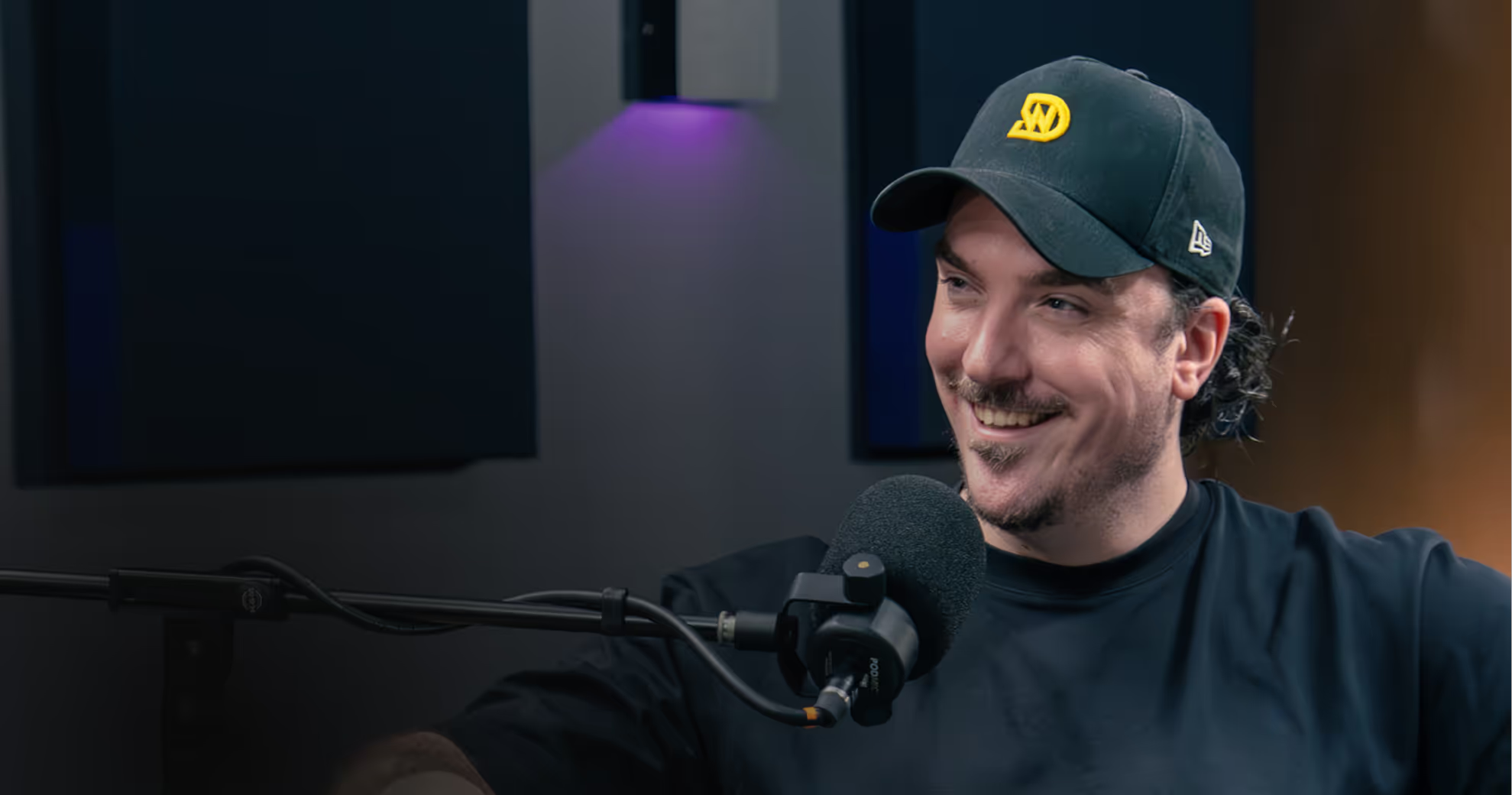
Work With Me
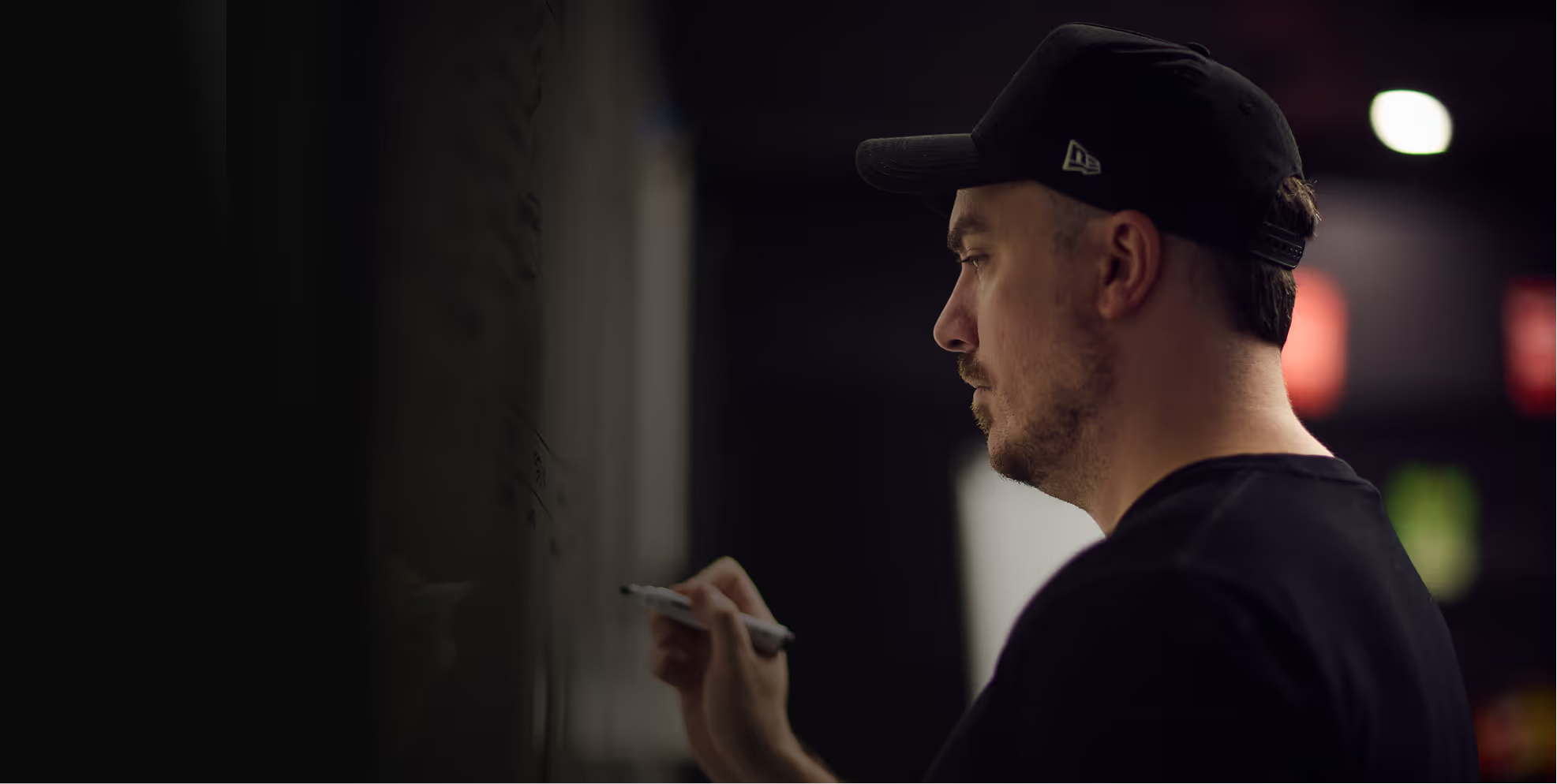
Enquire With Dain’s Team
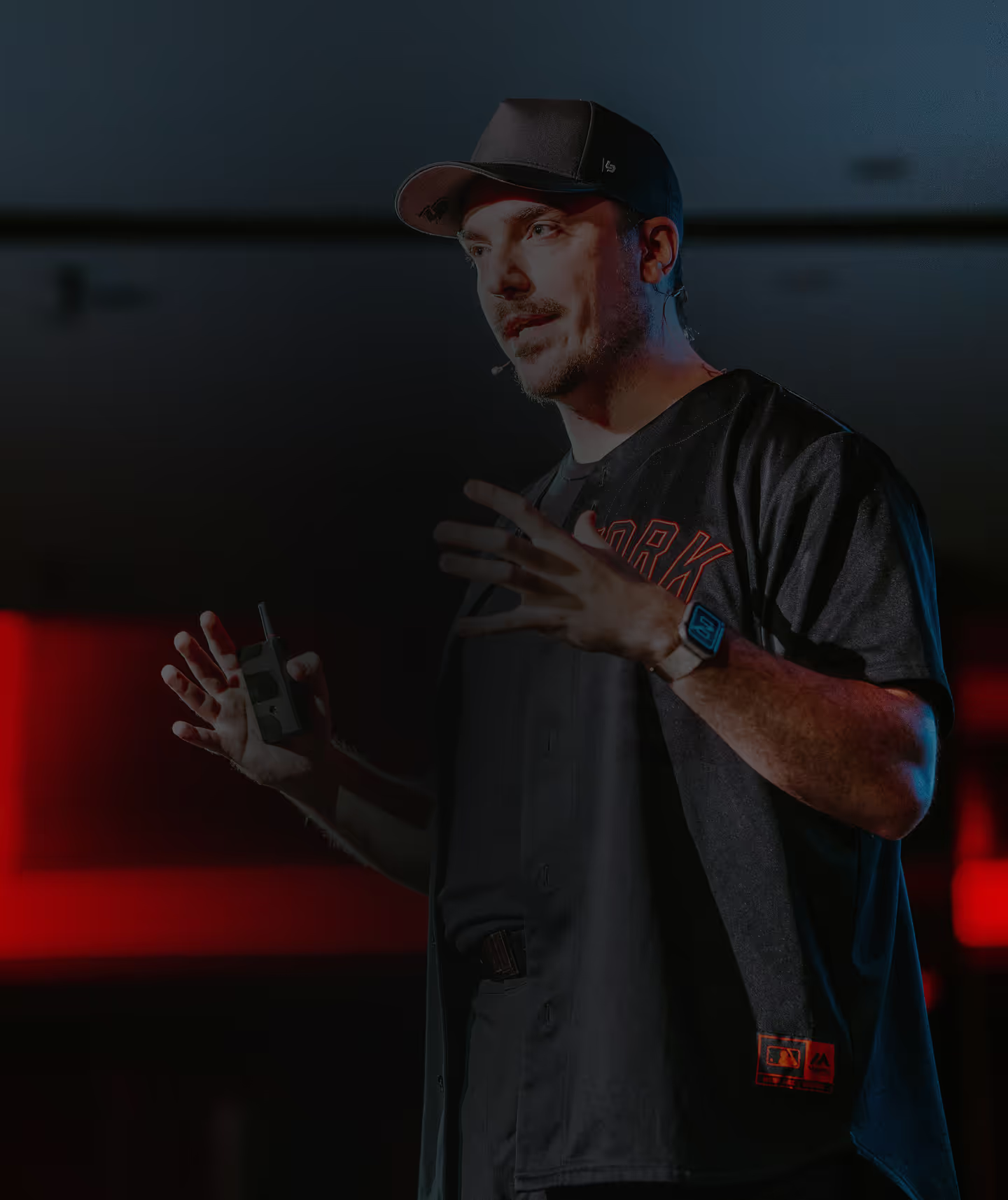
Enquire For Speaking

Let's Get You Branded
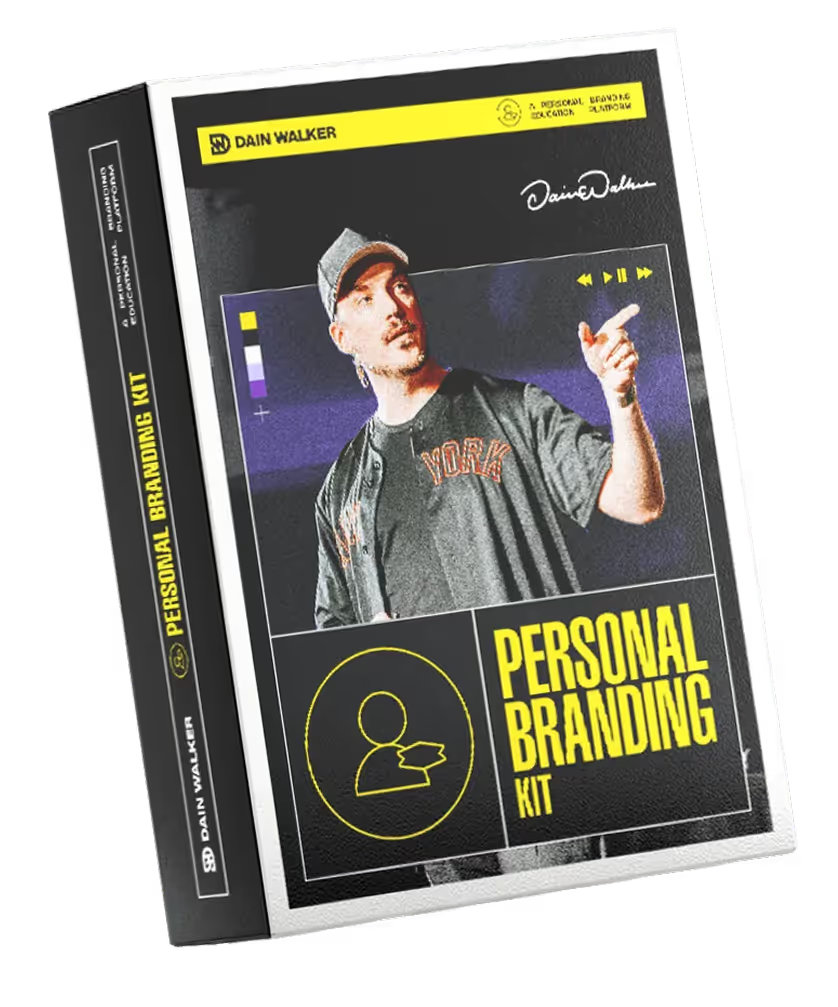
Apply to be a guest
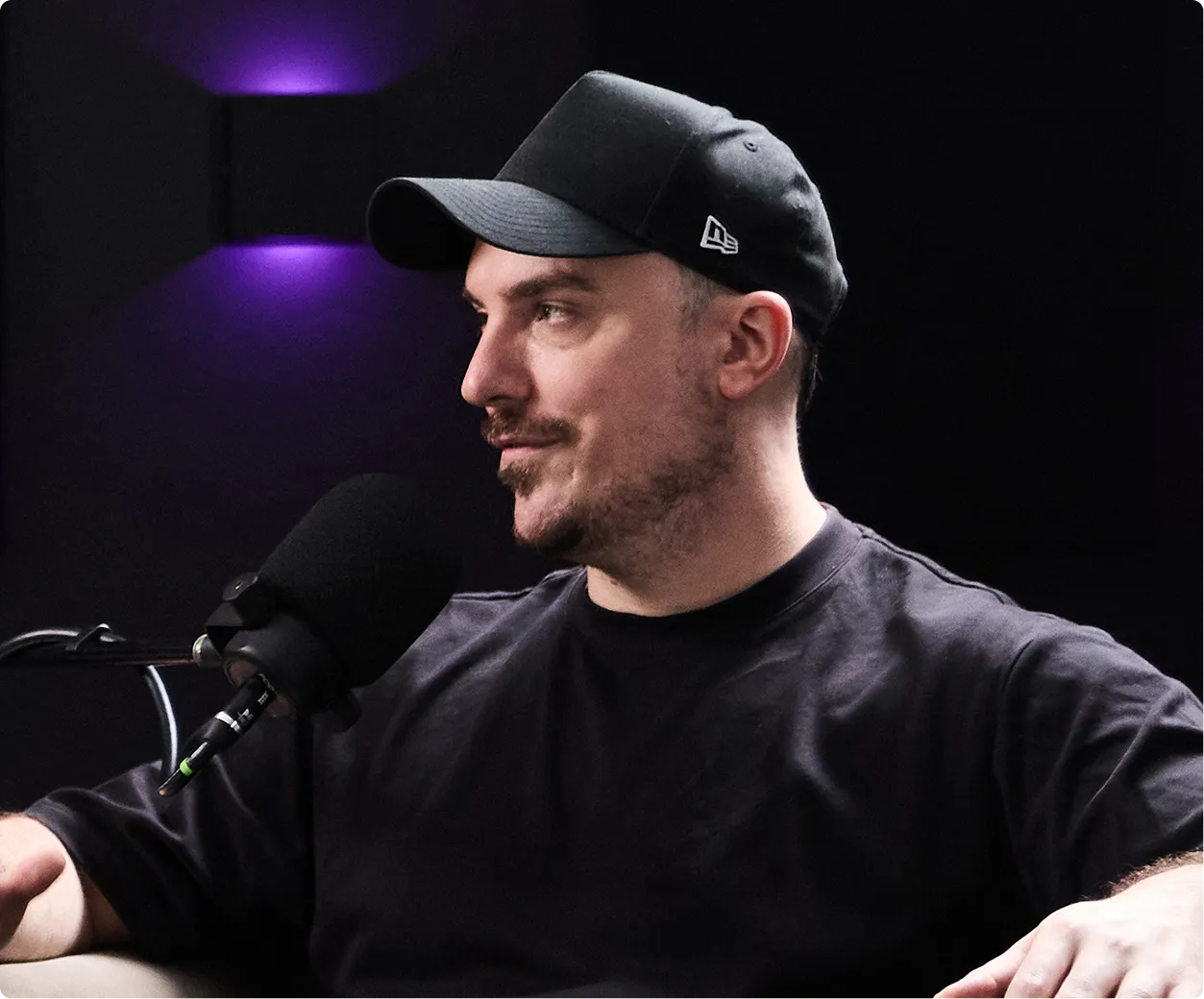
Dive into insights from industry leaders and experts.
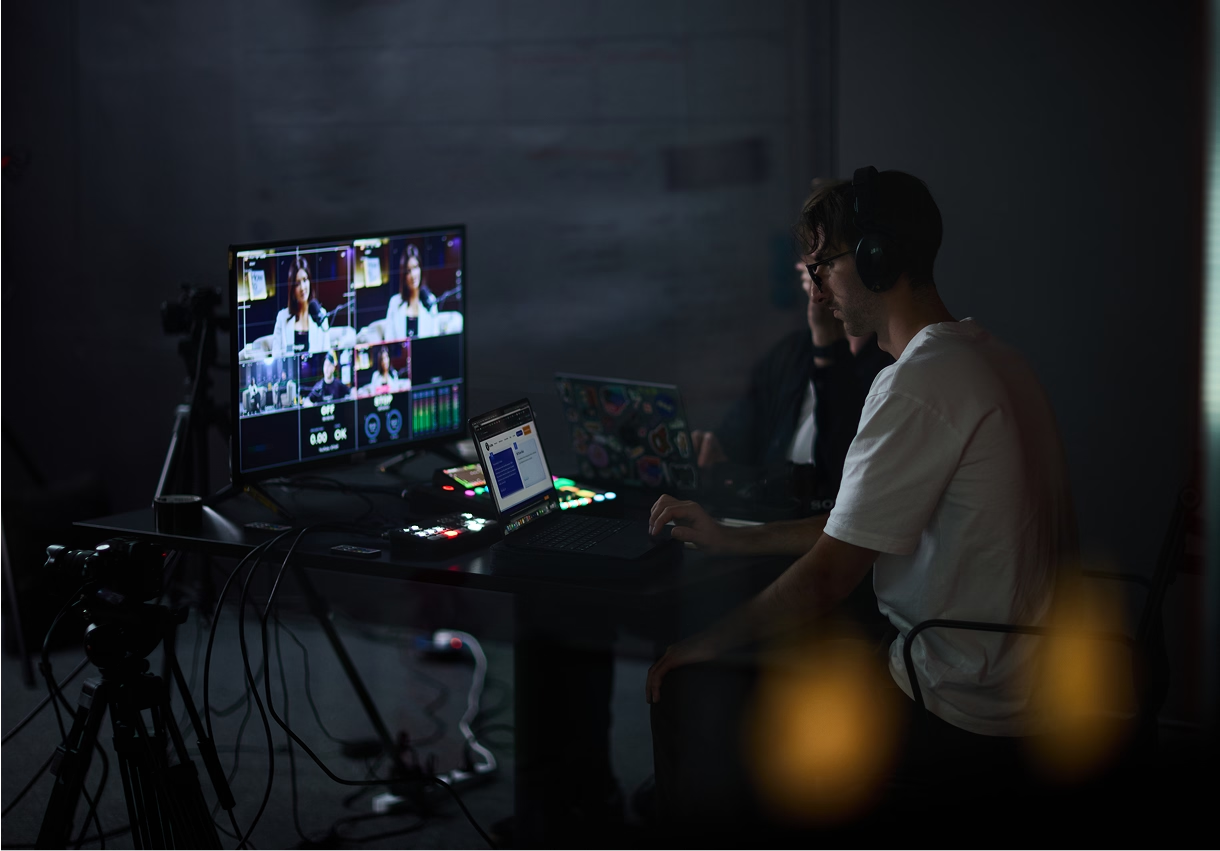
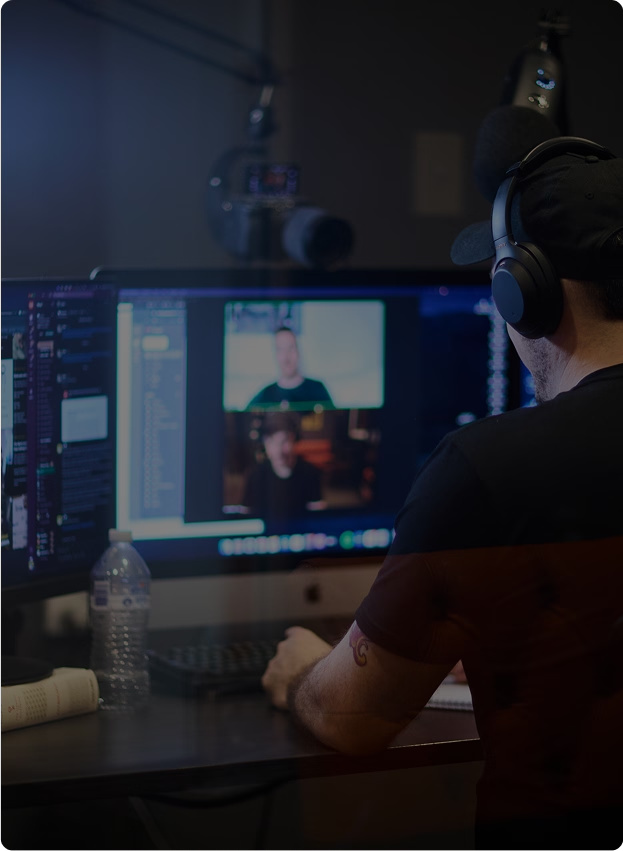
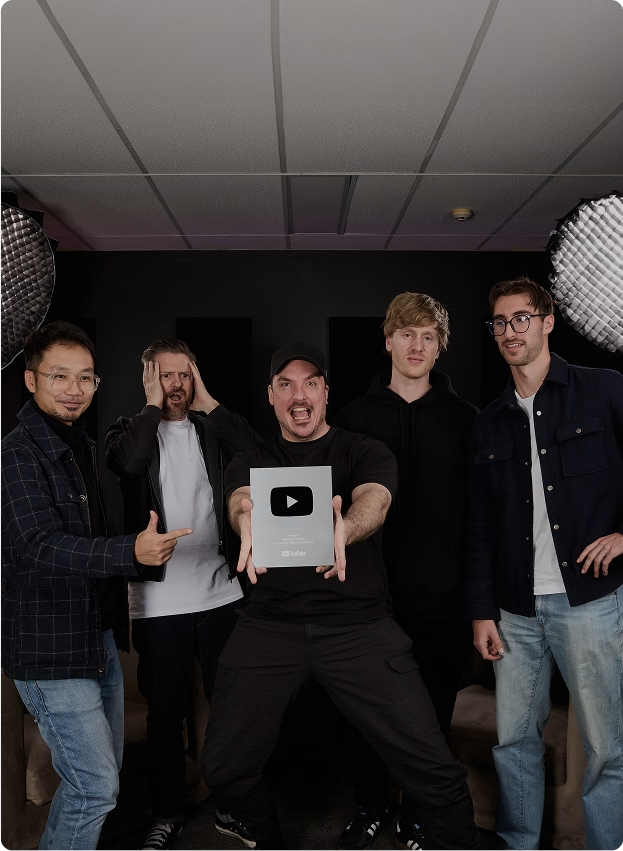
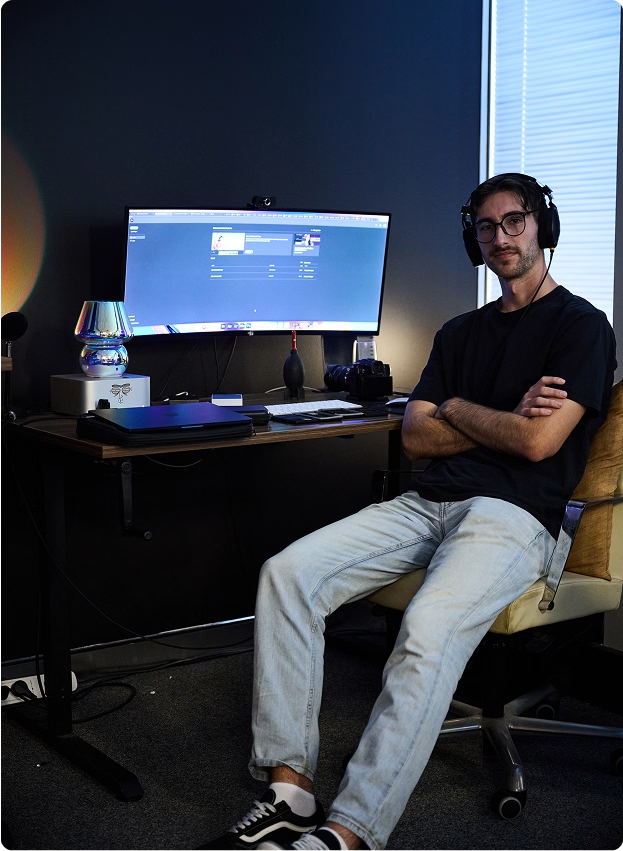
Stream now
Dive into expert advice and industry trends.
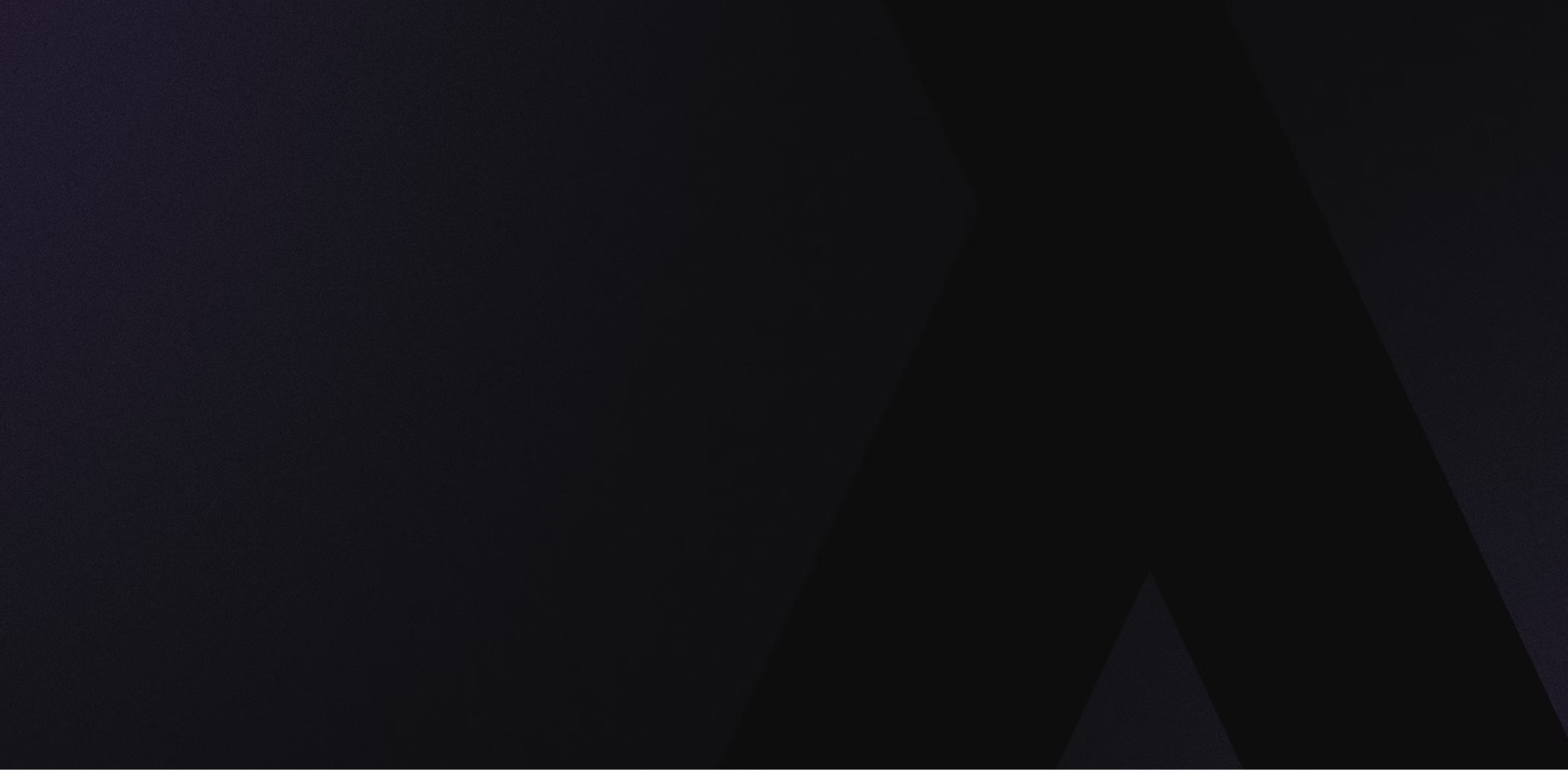

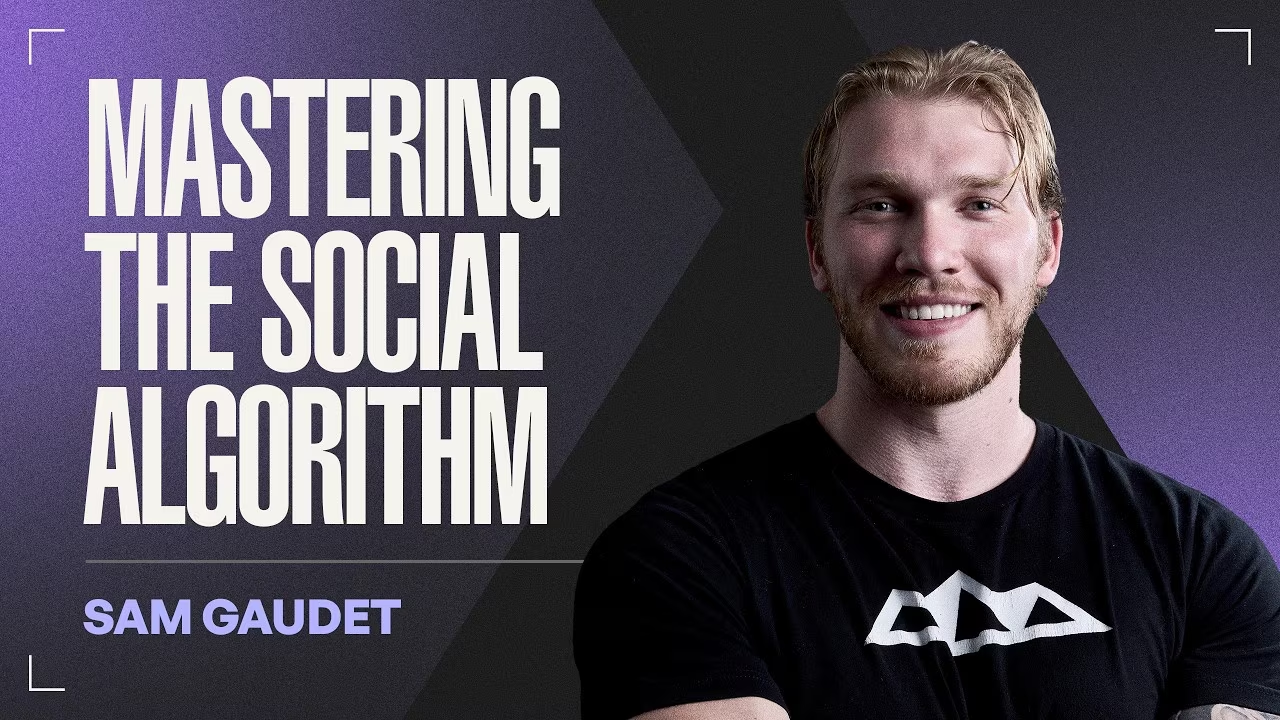
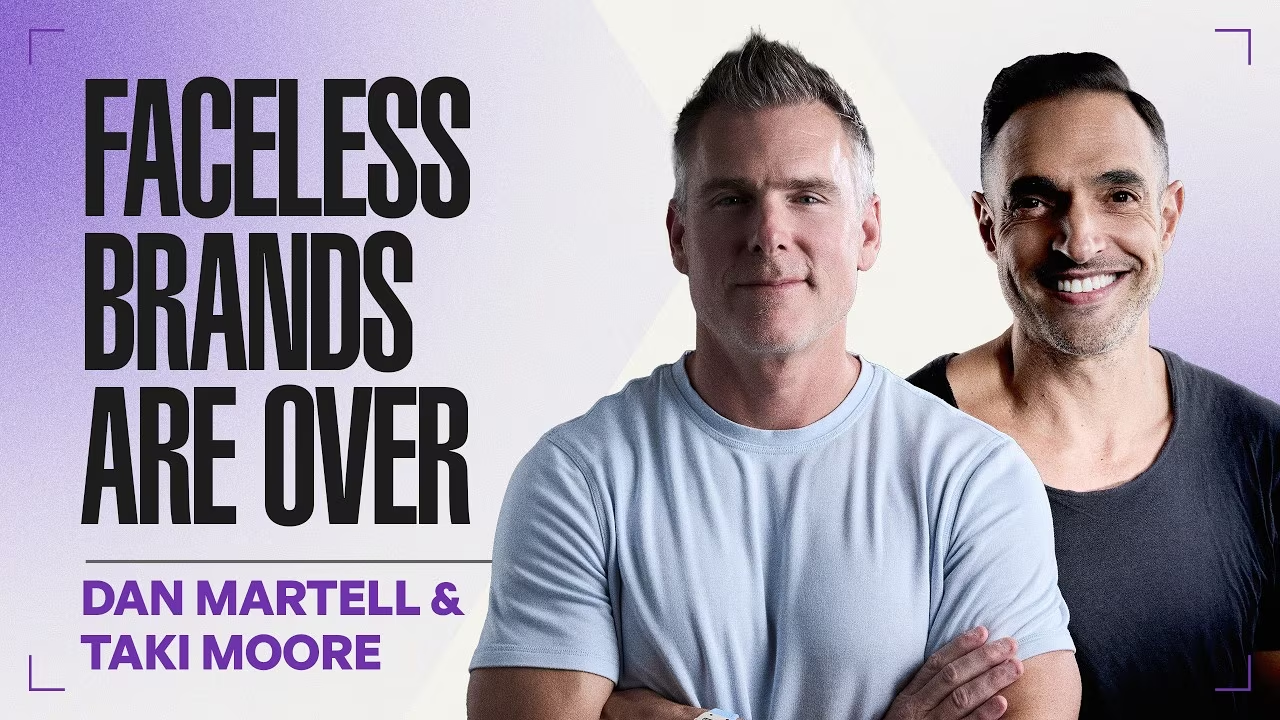
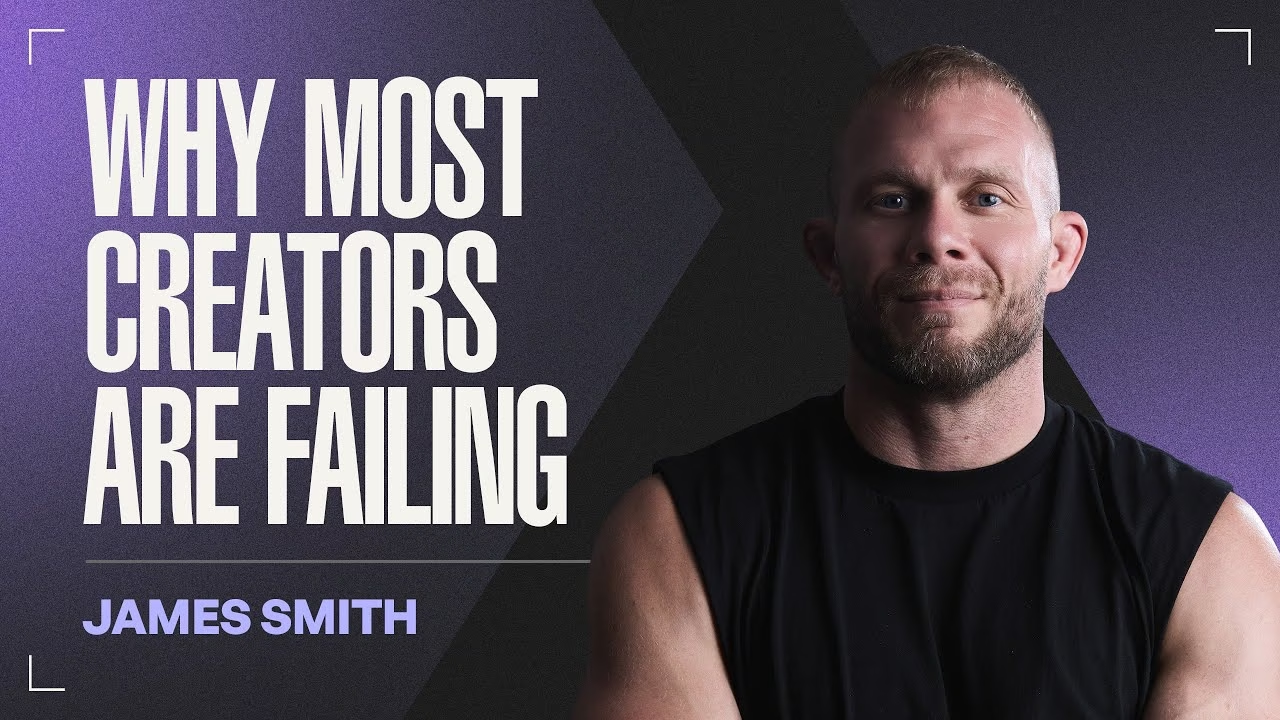
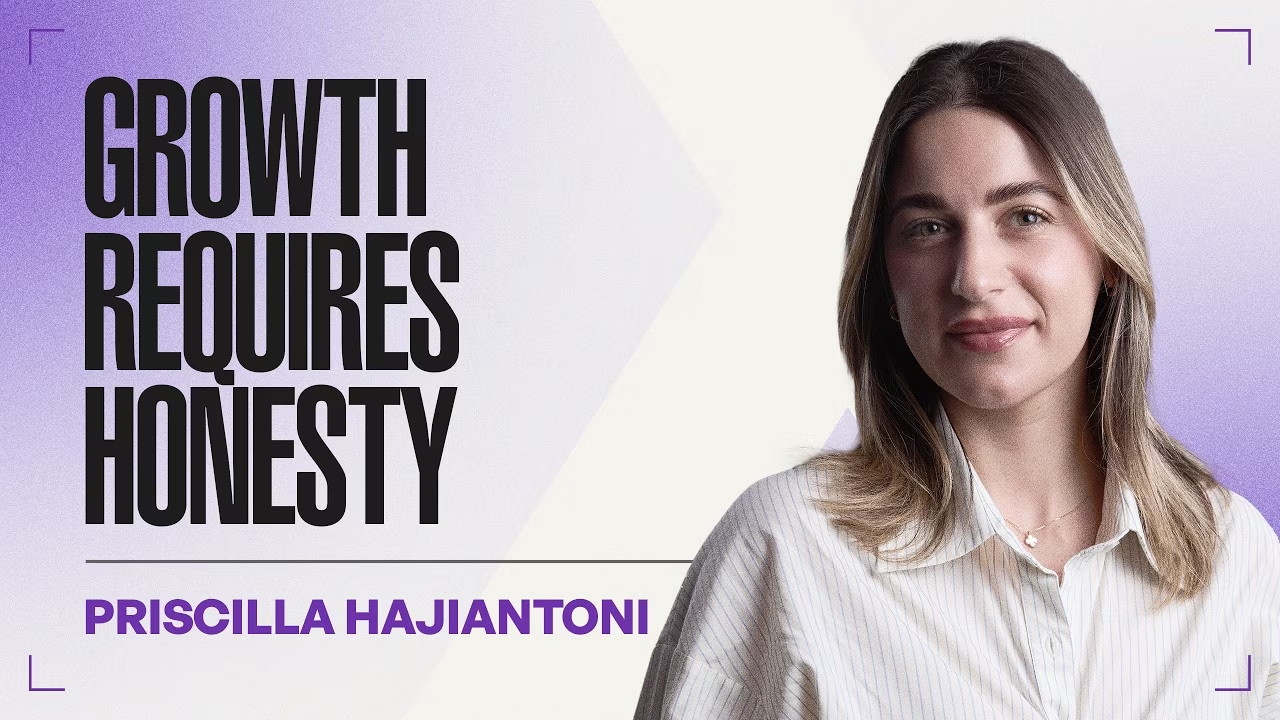
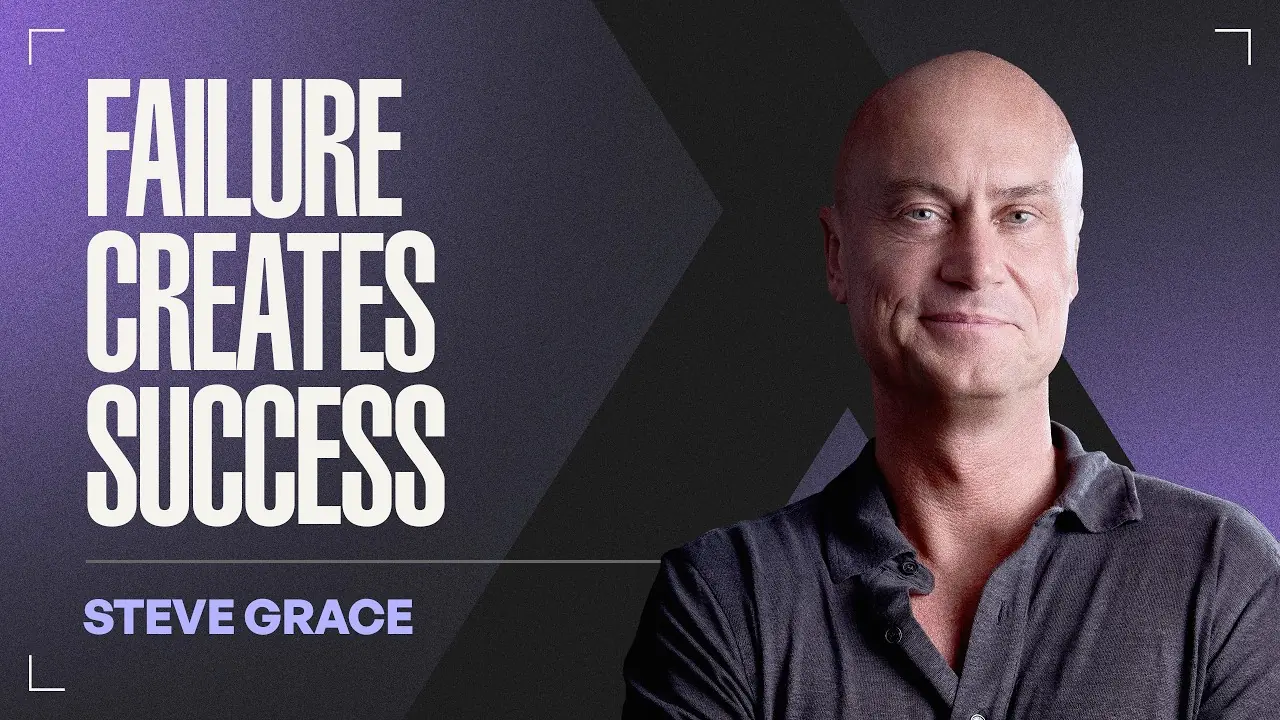
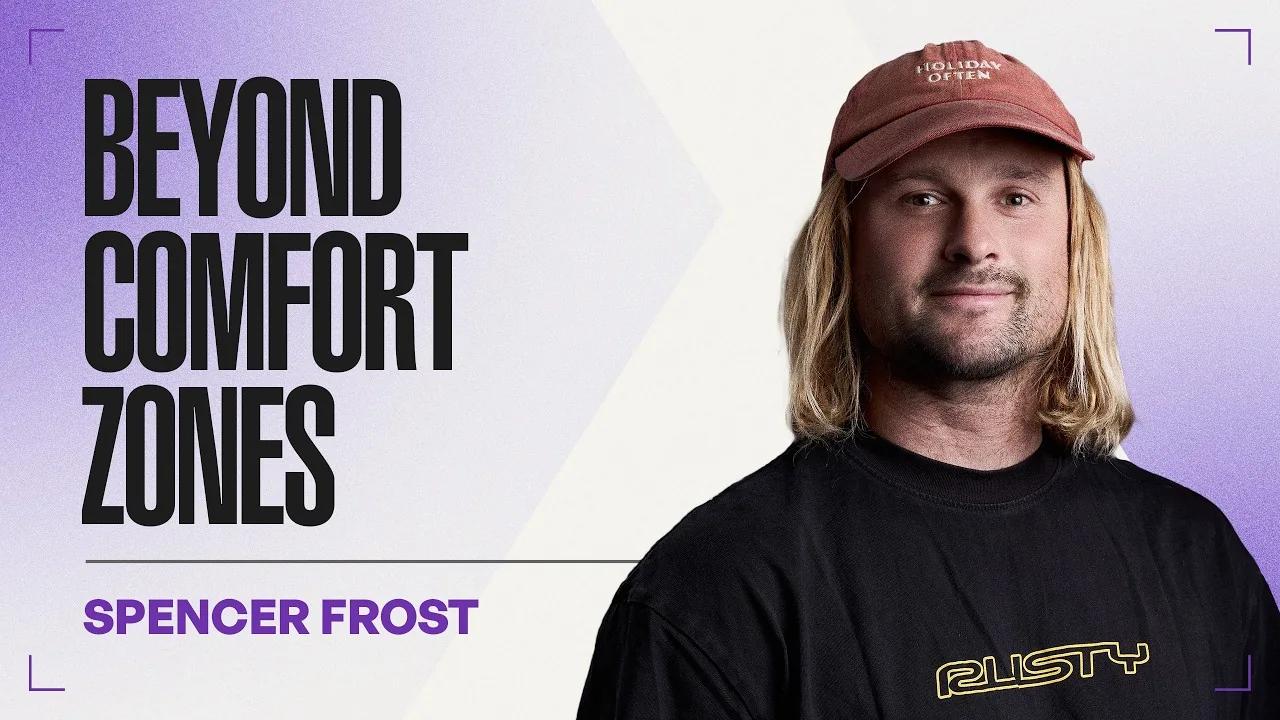
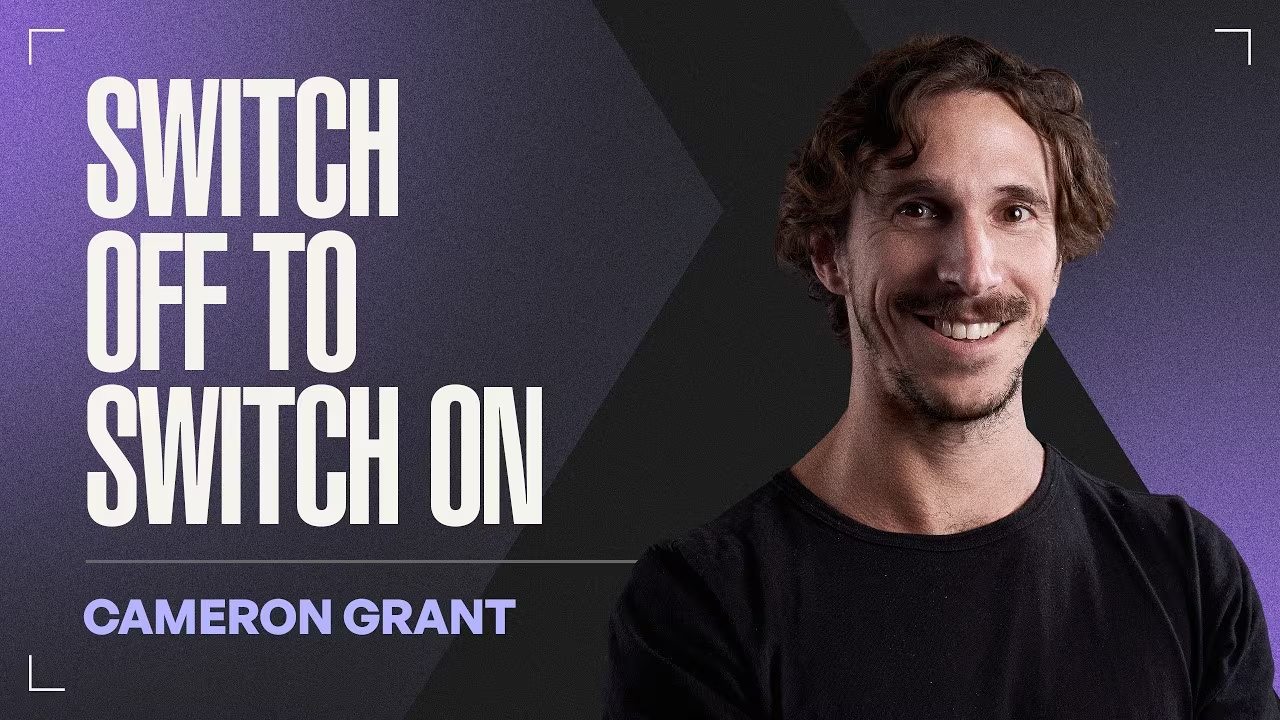
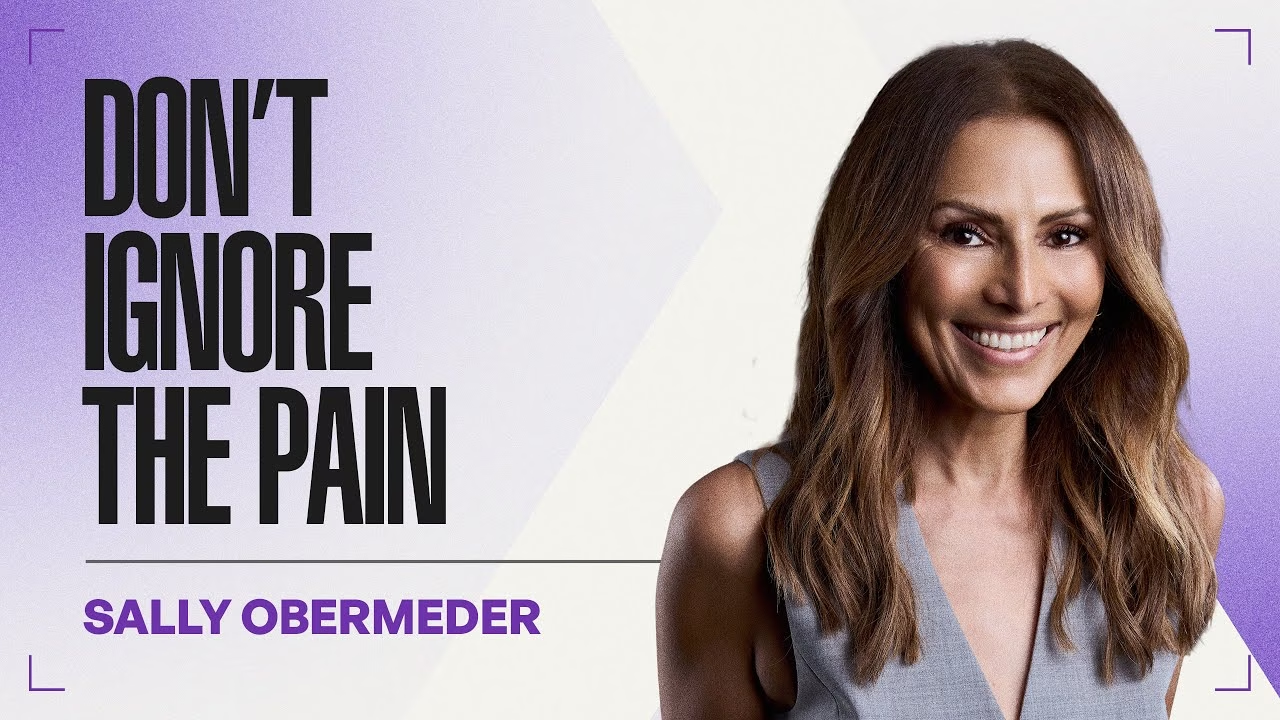
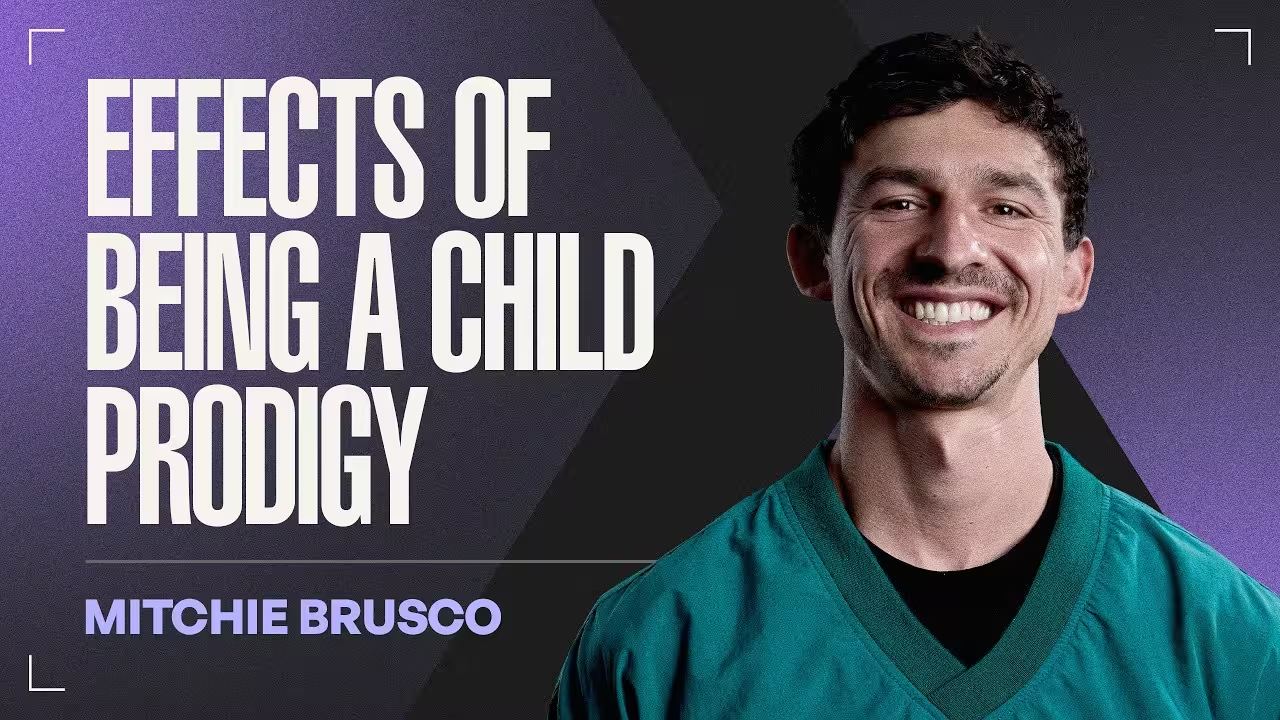
.avif)
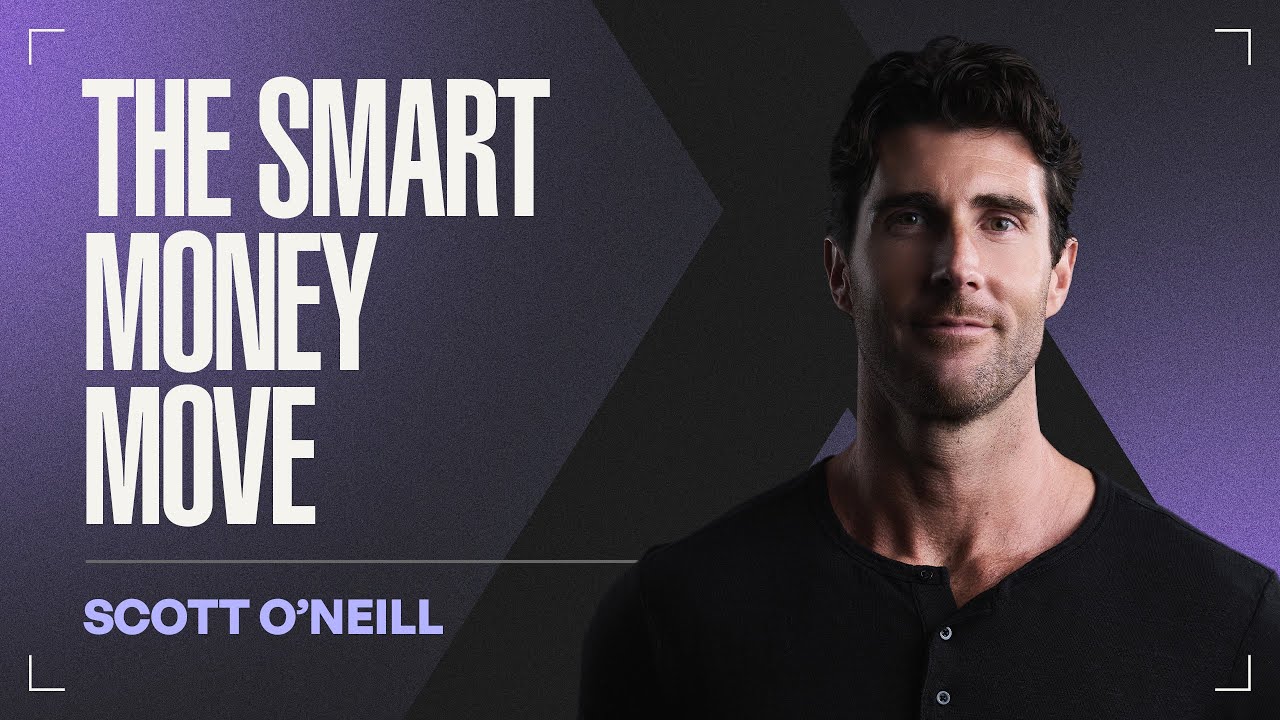
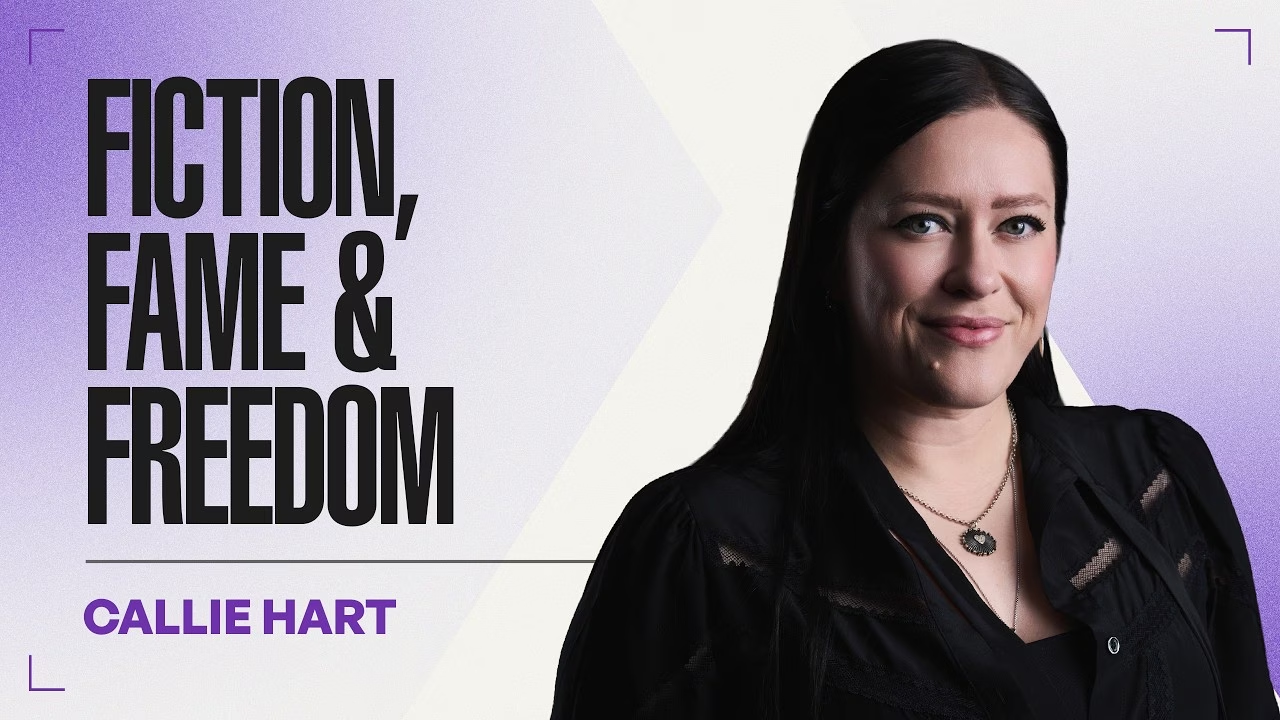

.avif)
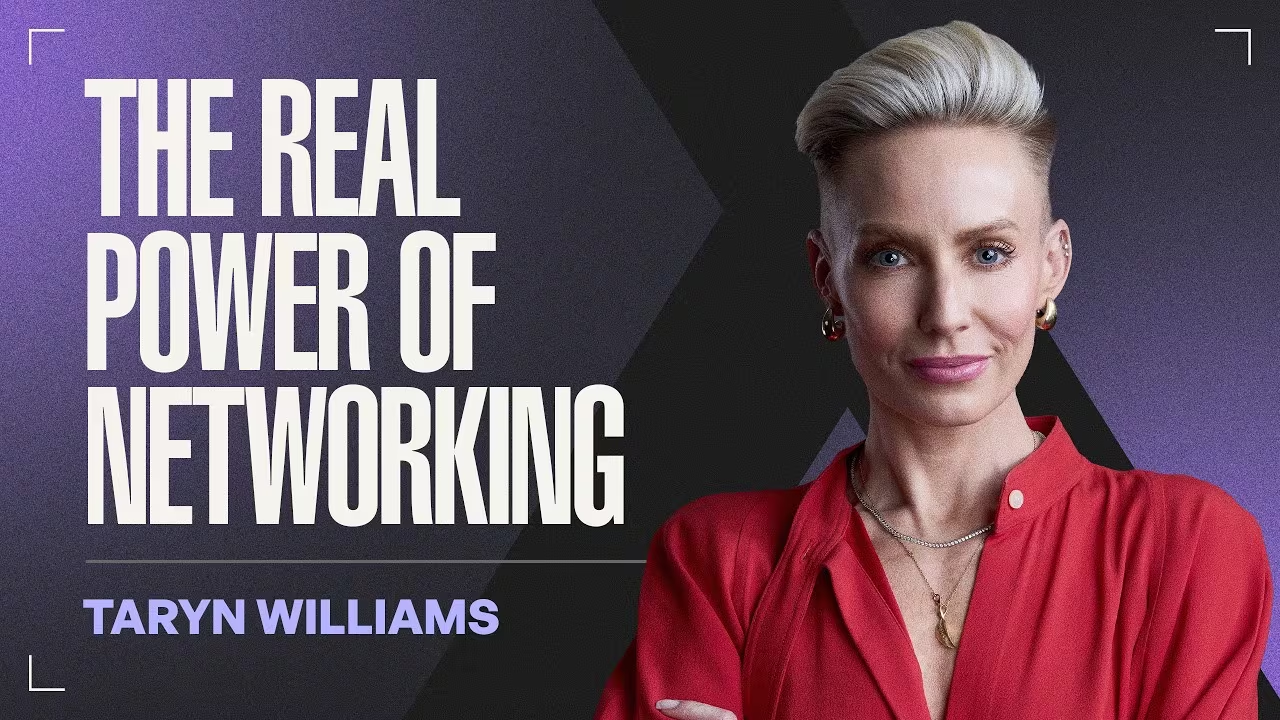

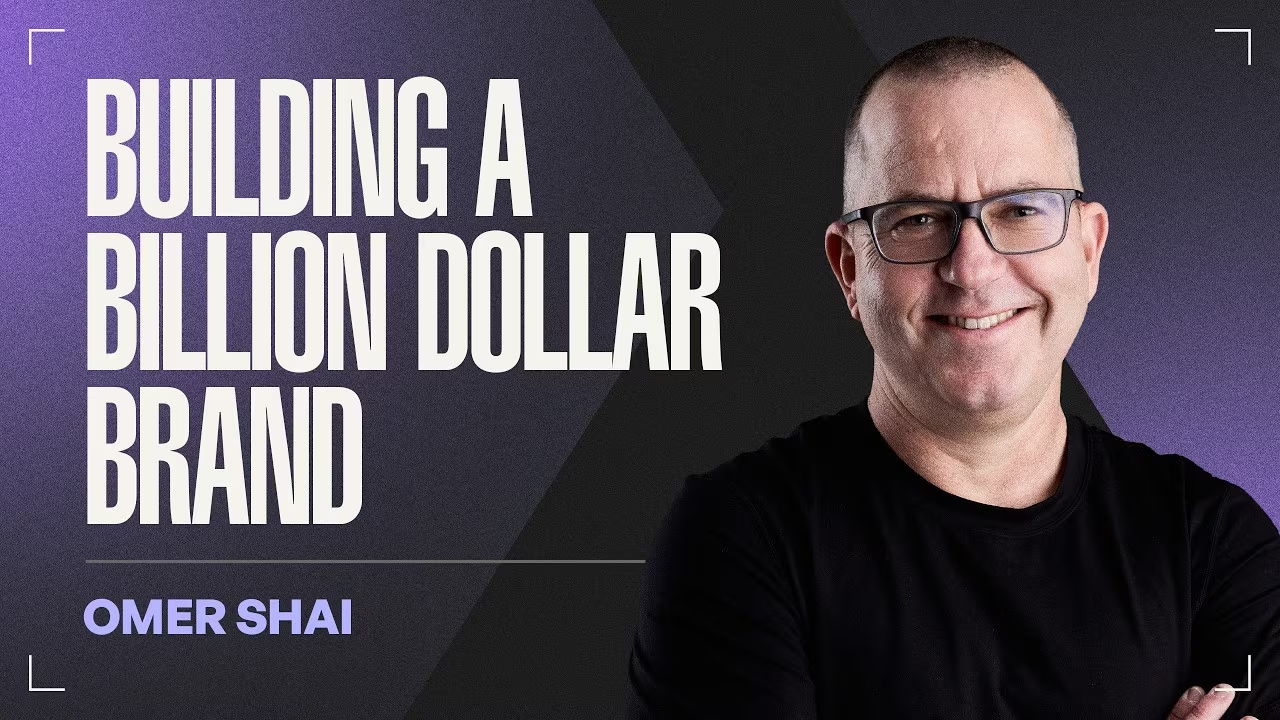
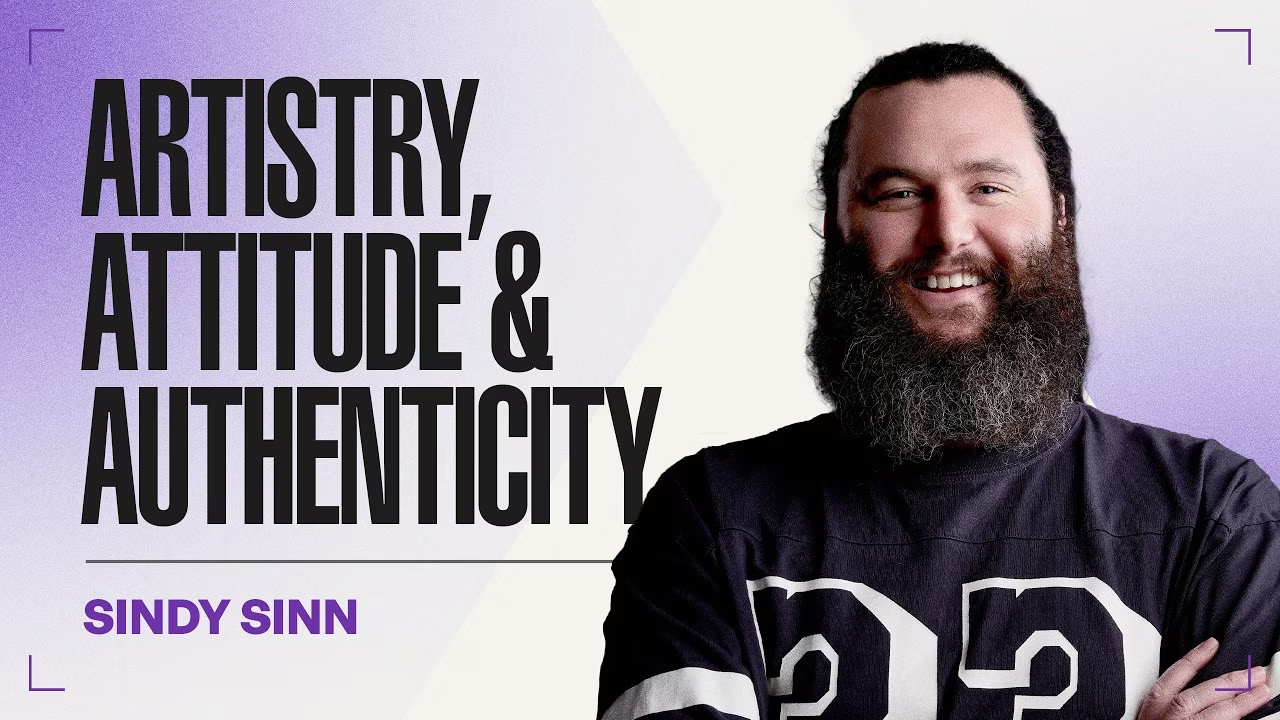
%20(1).avif)
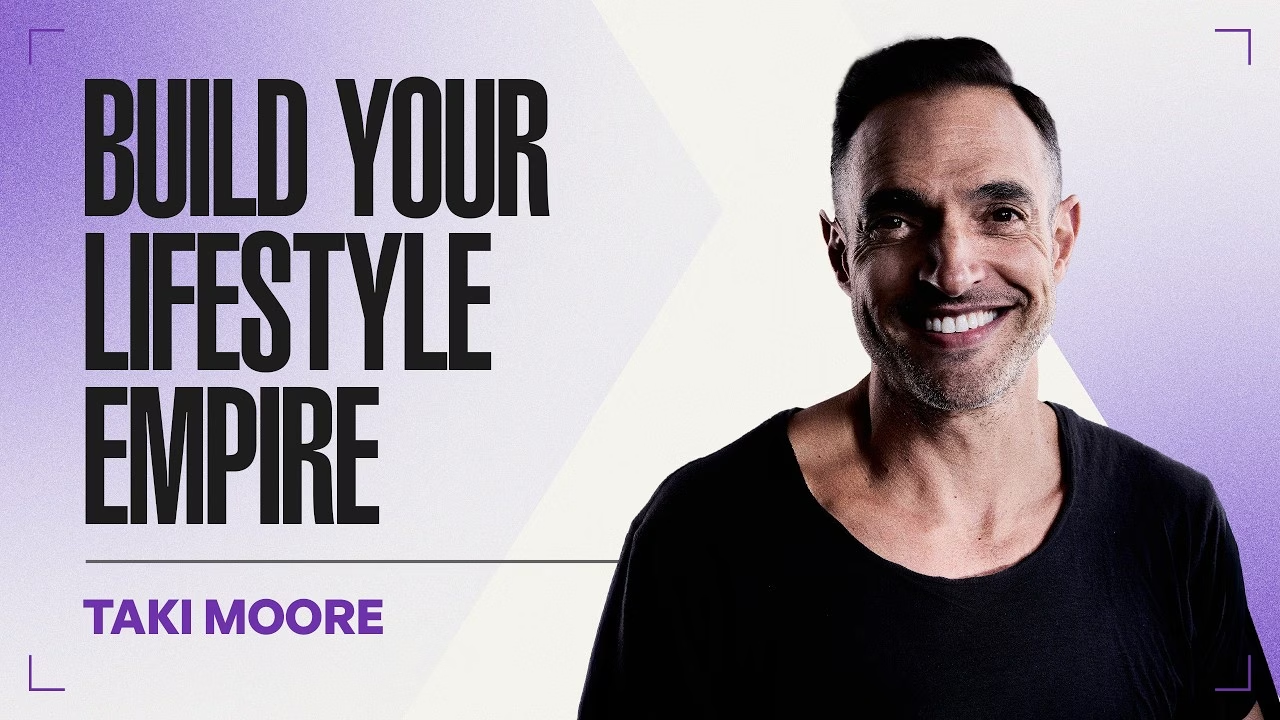
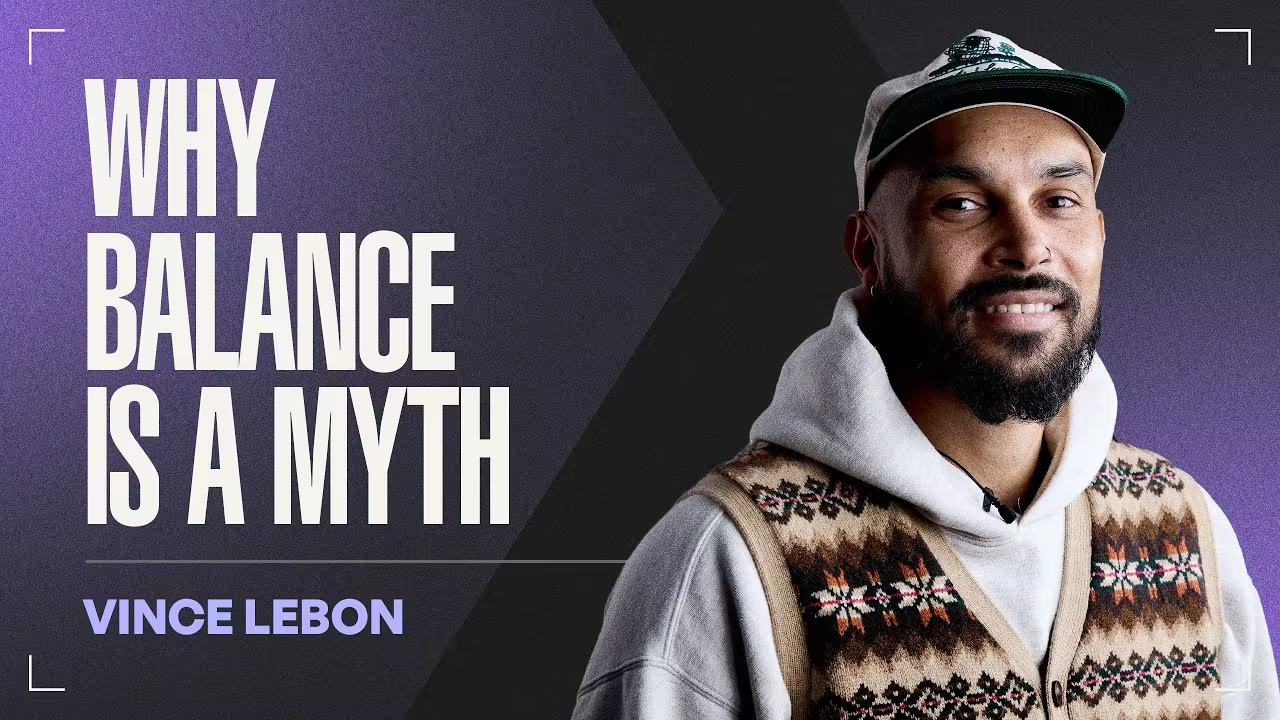
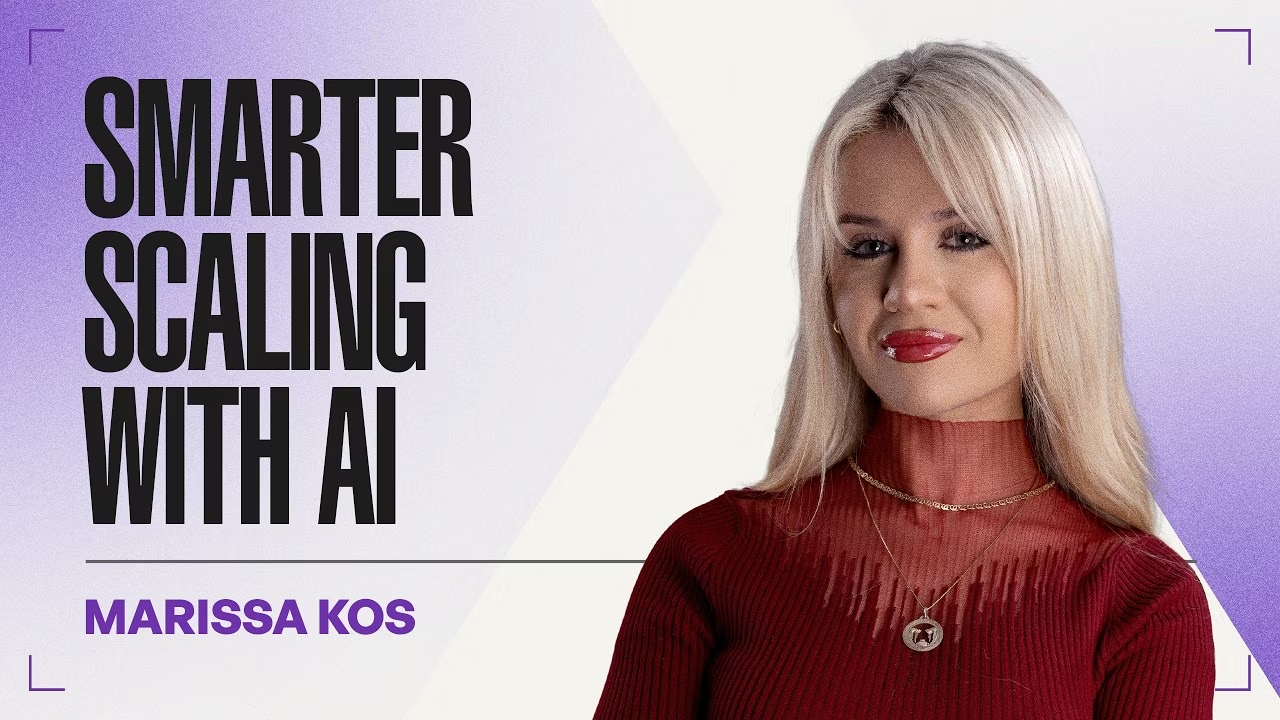
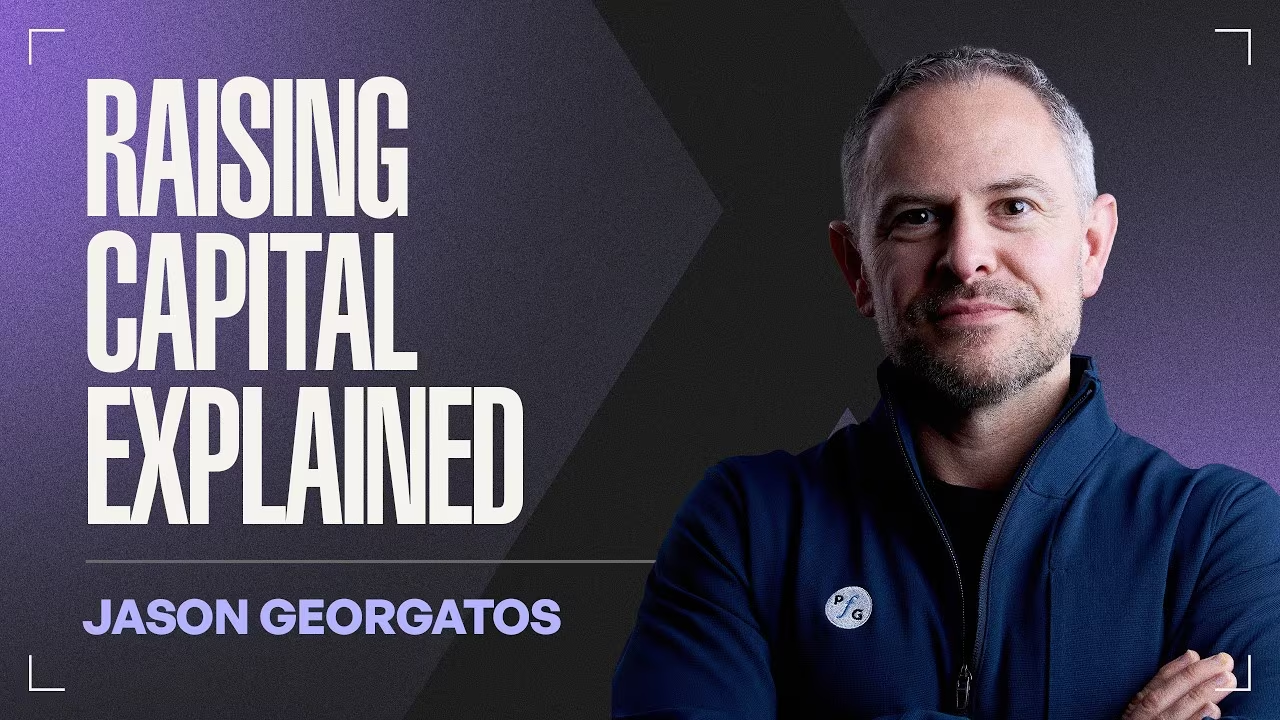
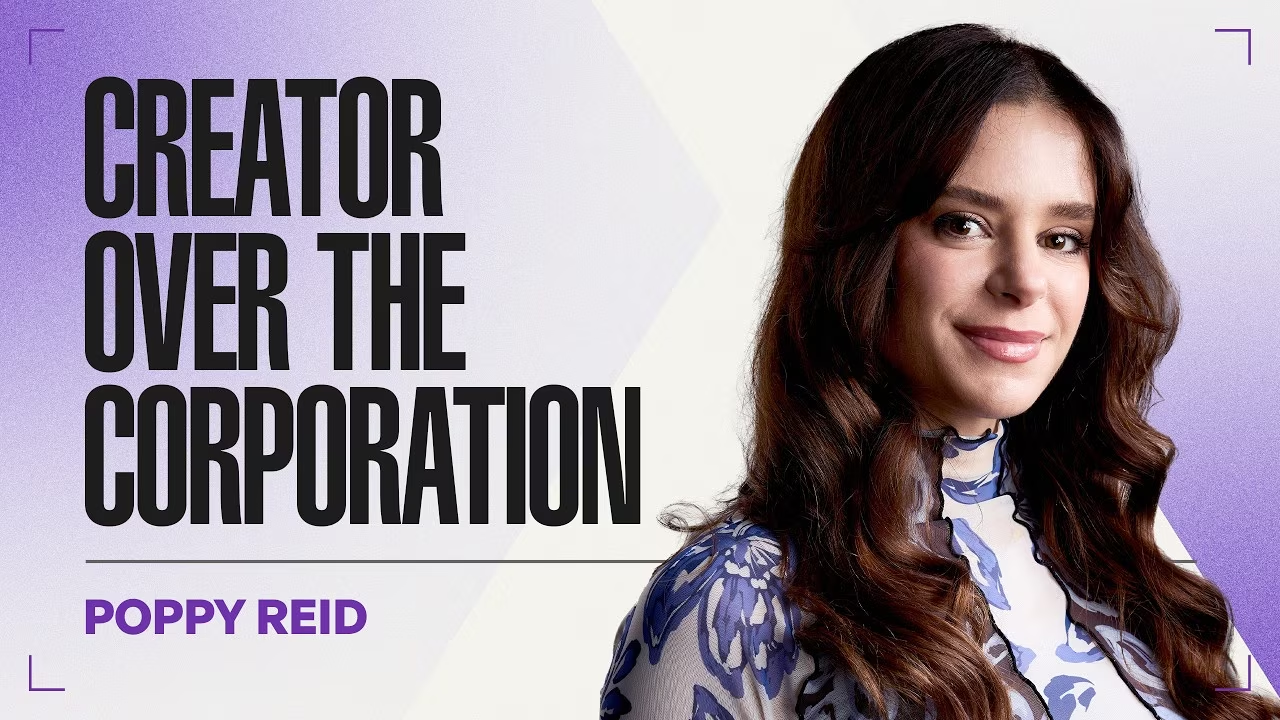
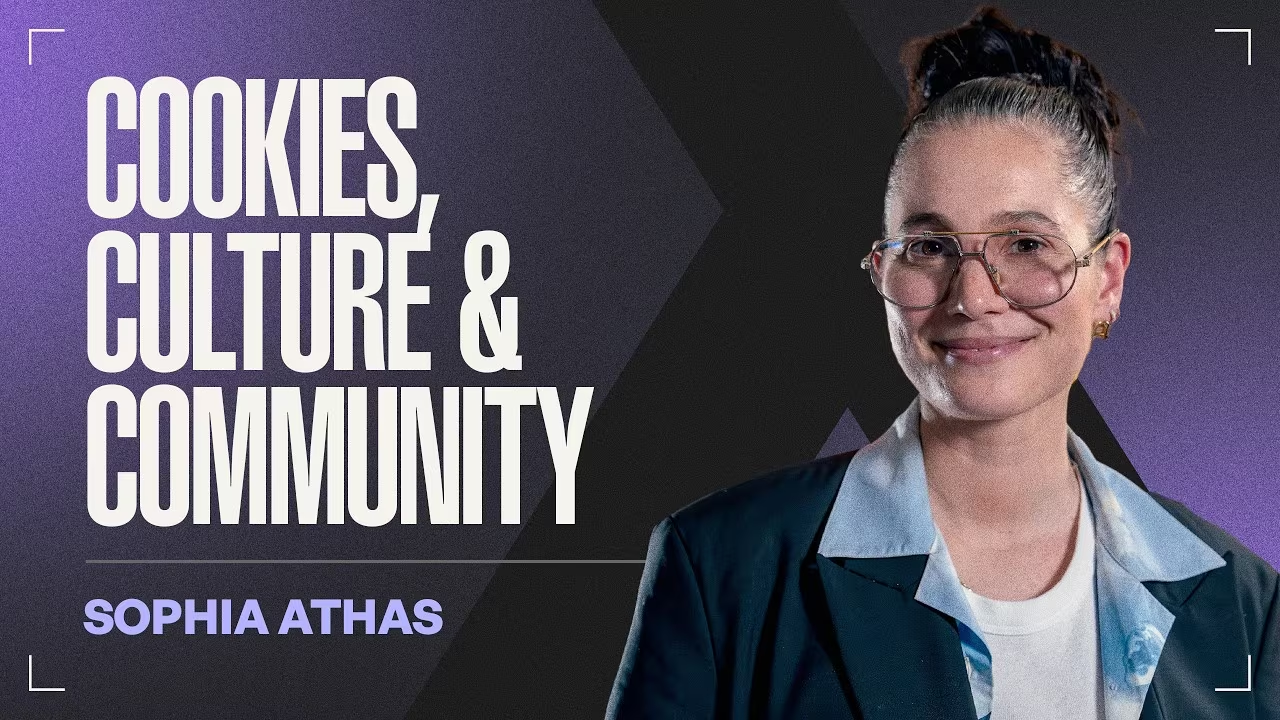

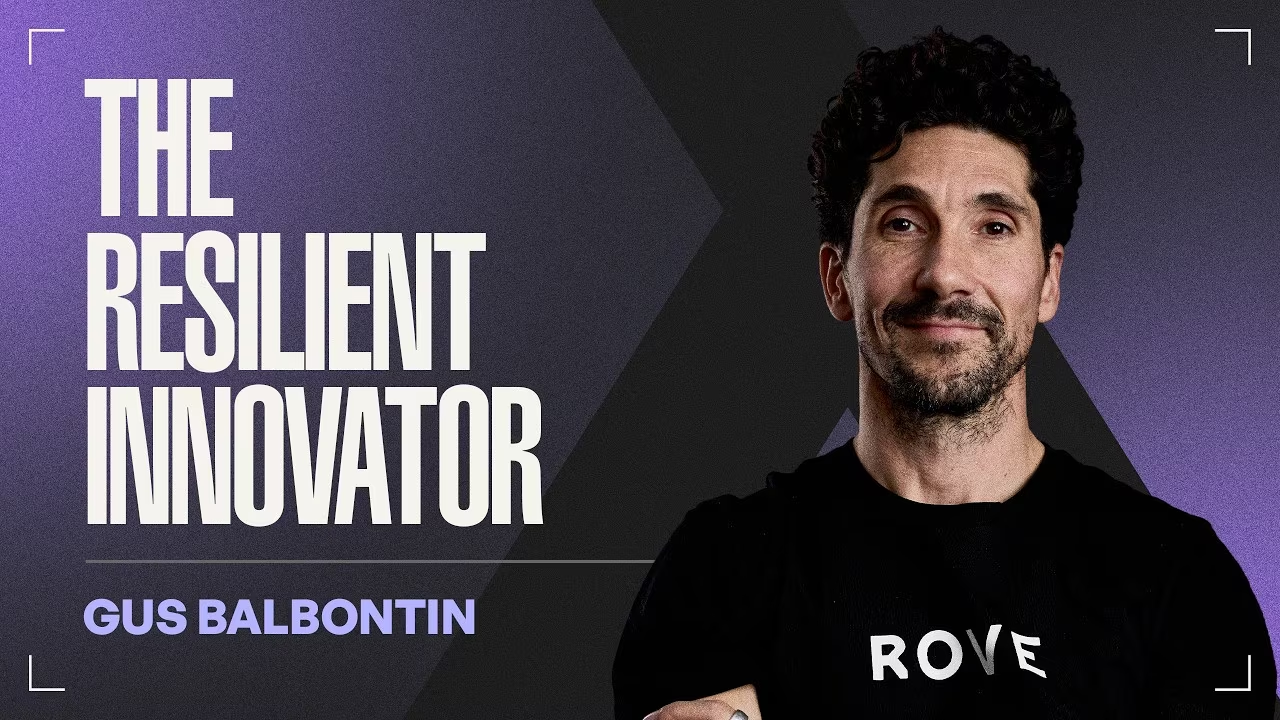
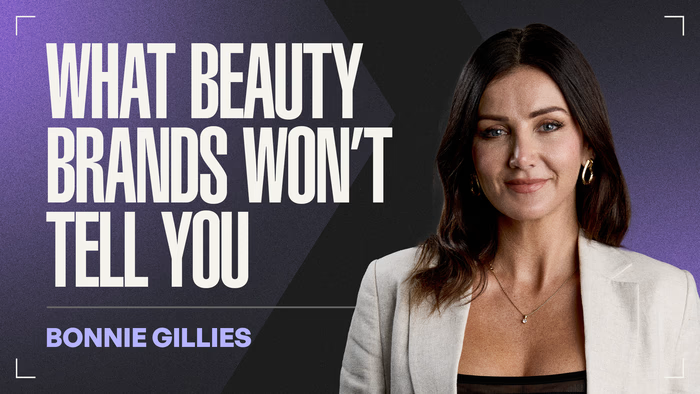


.avif)

